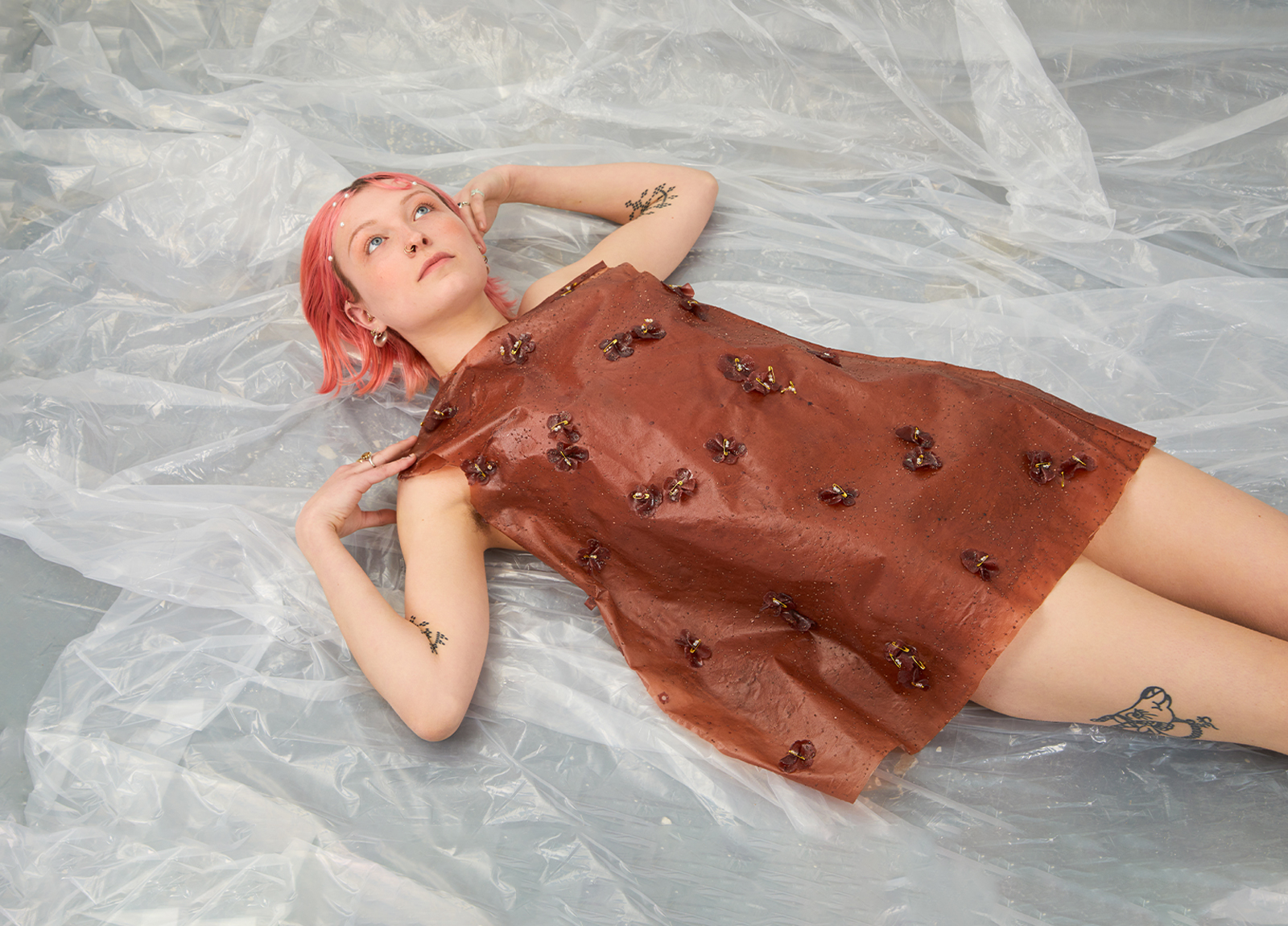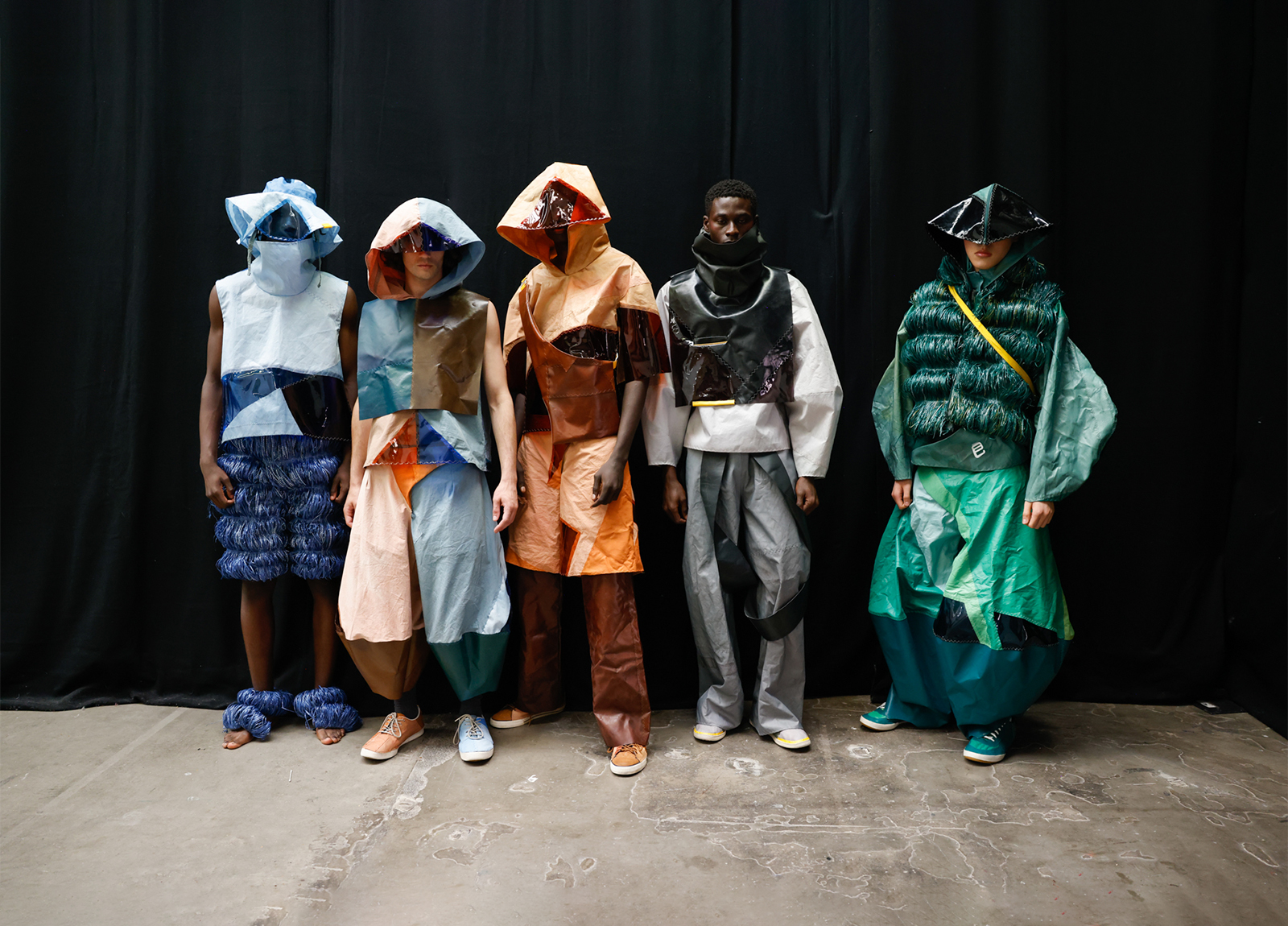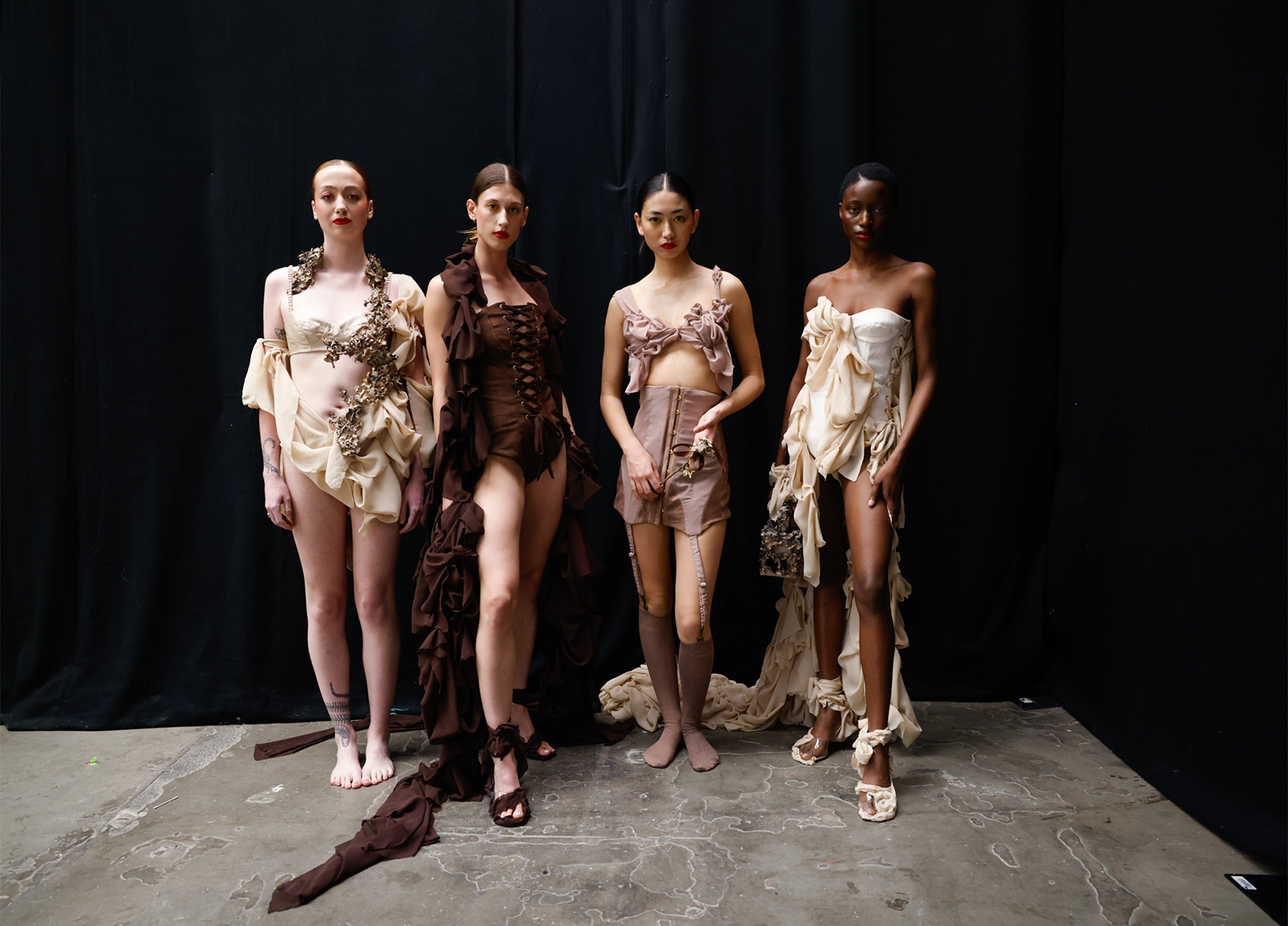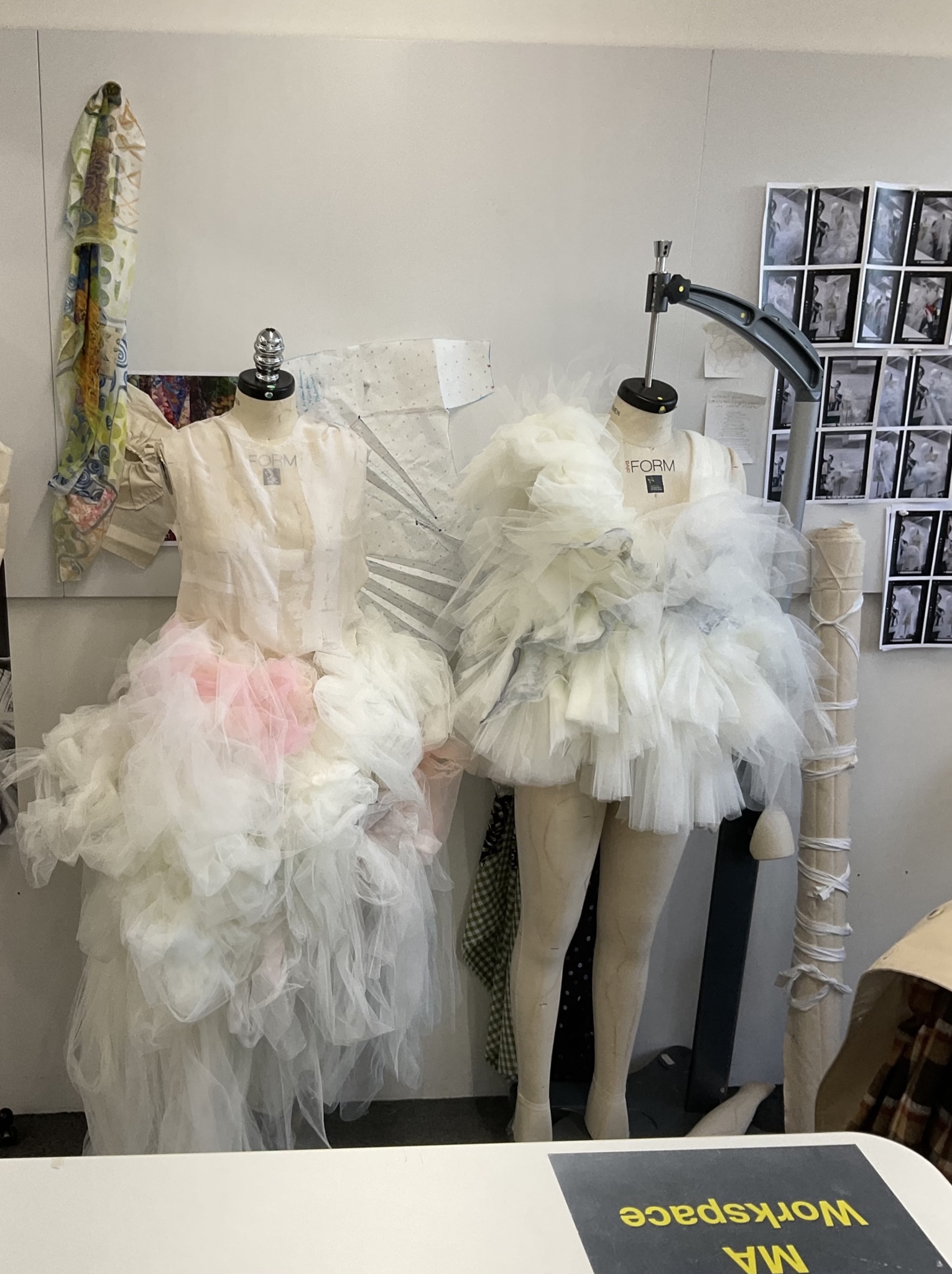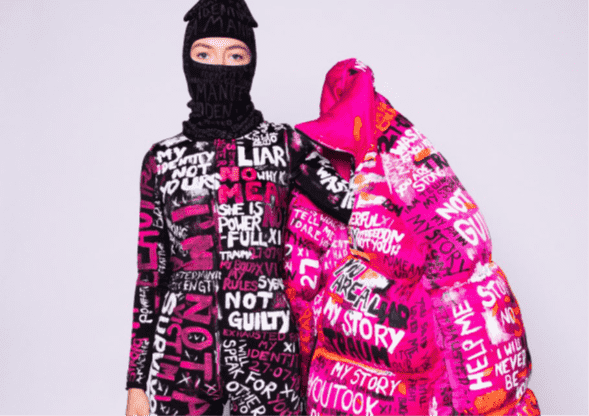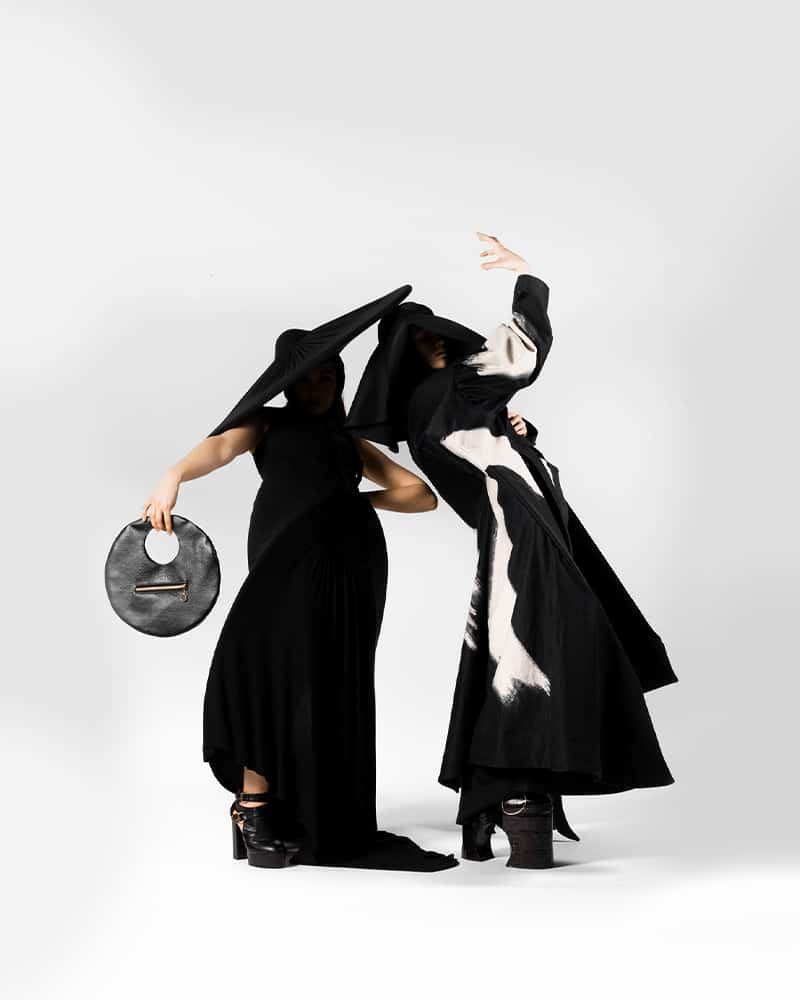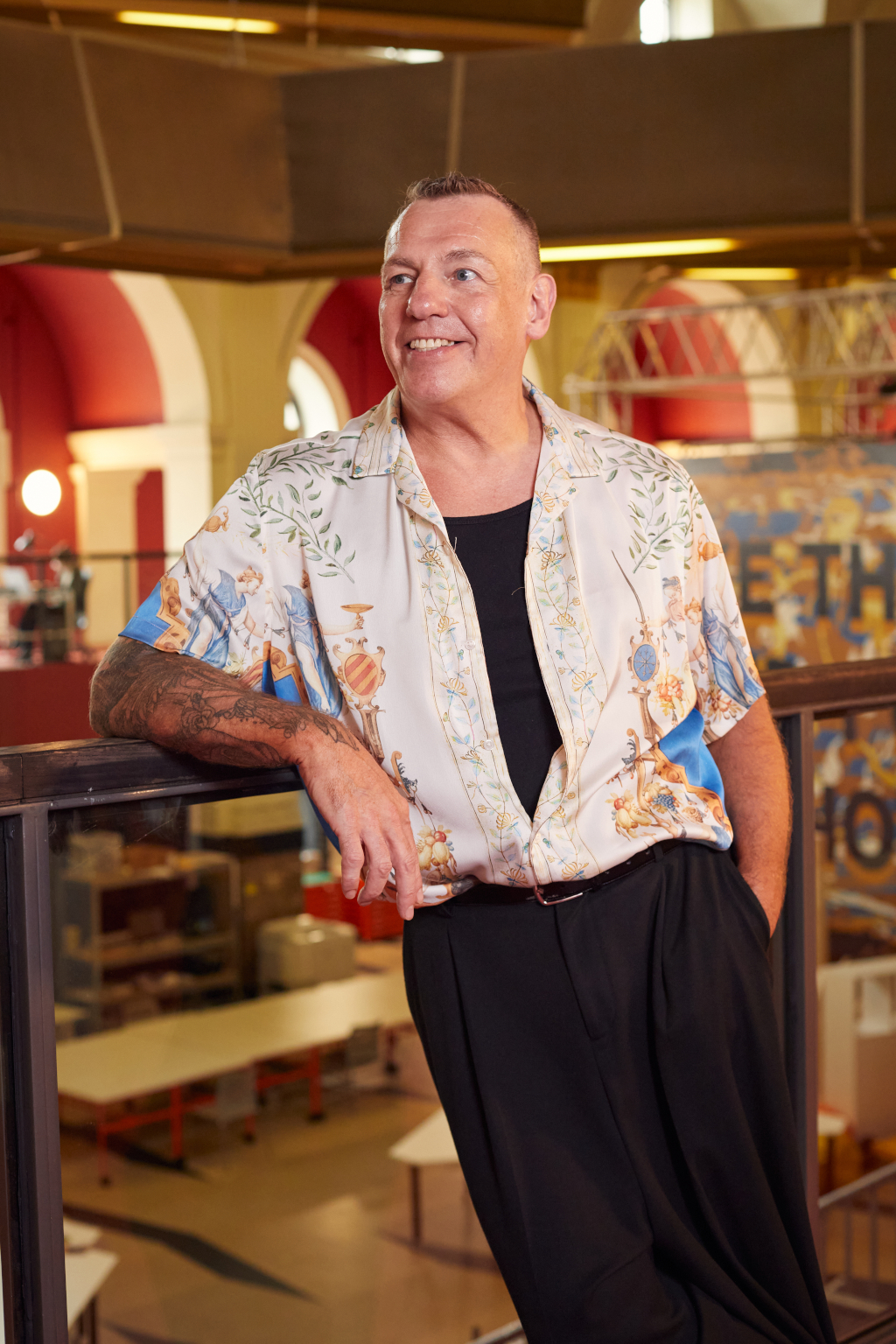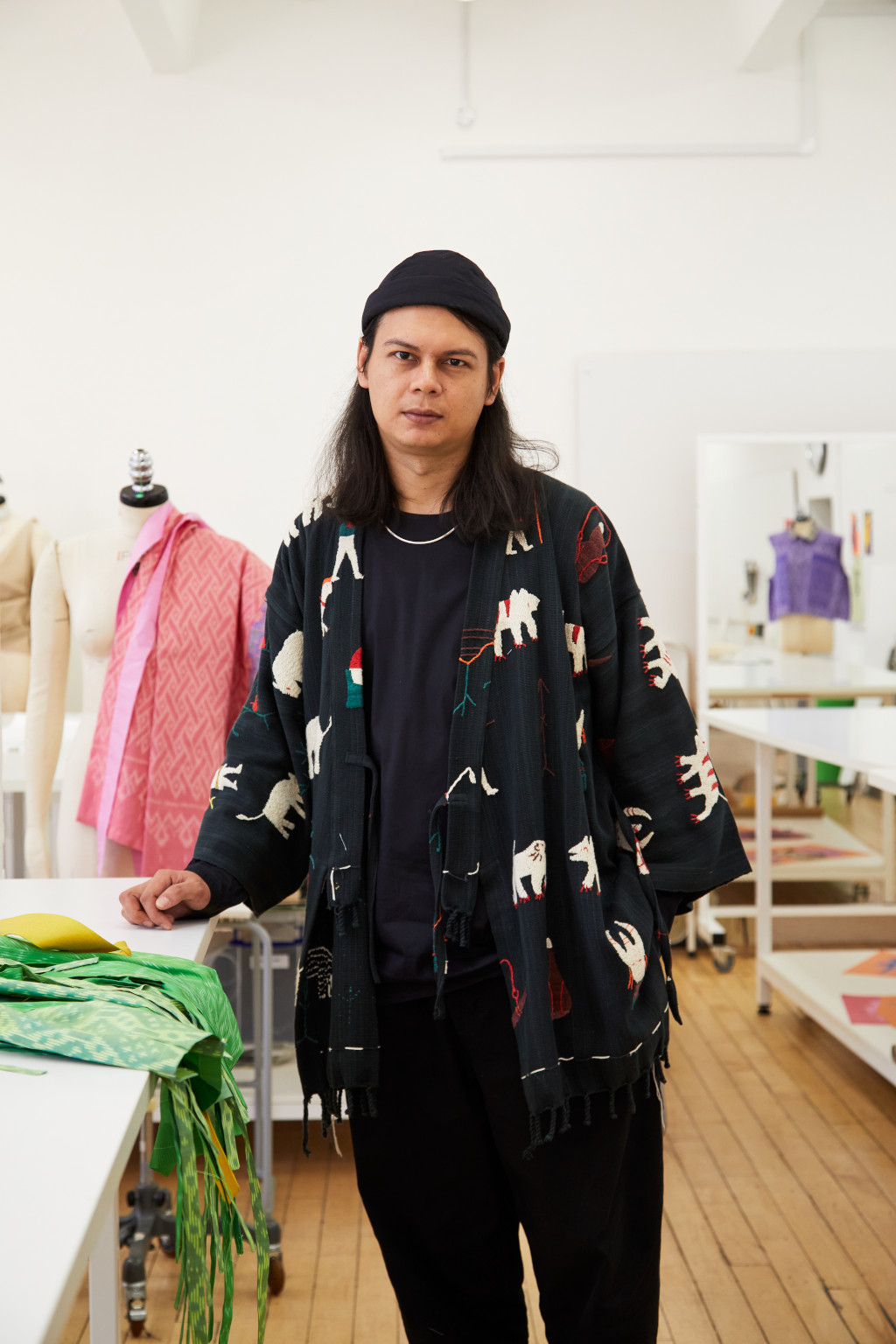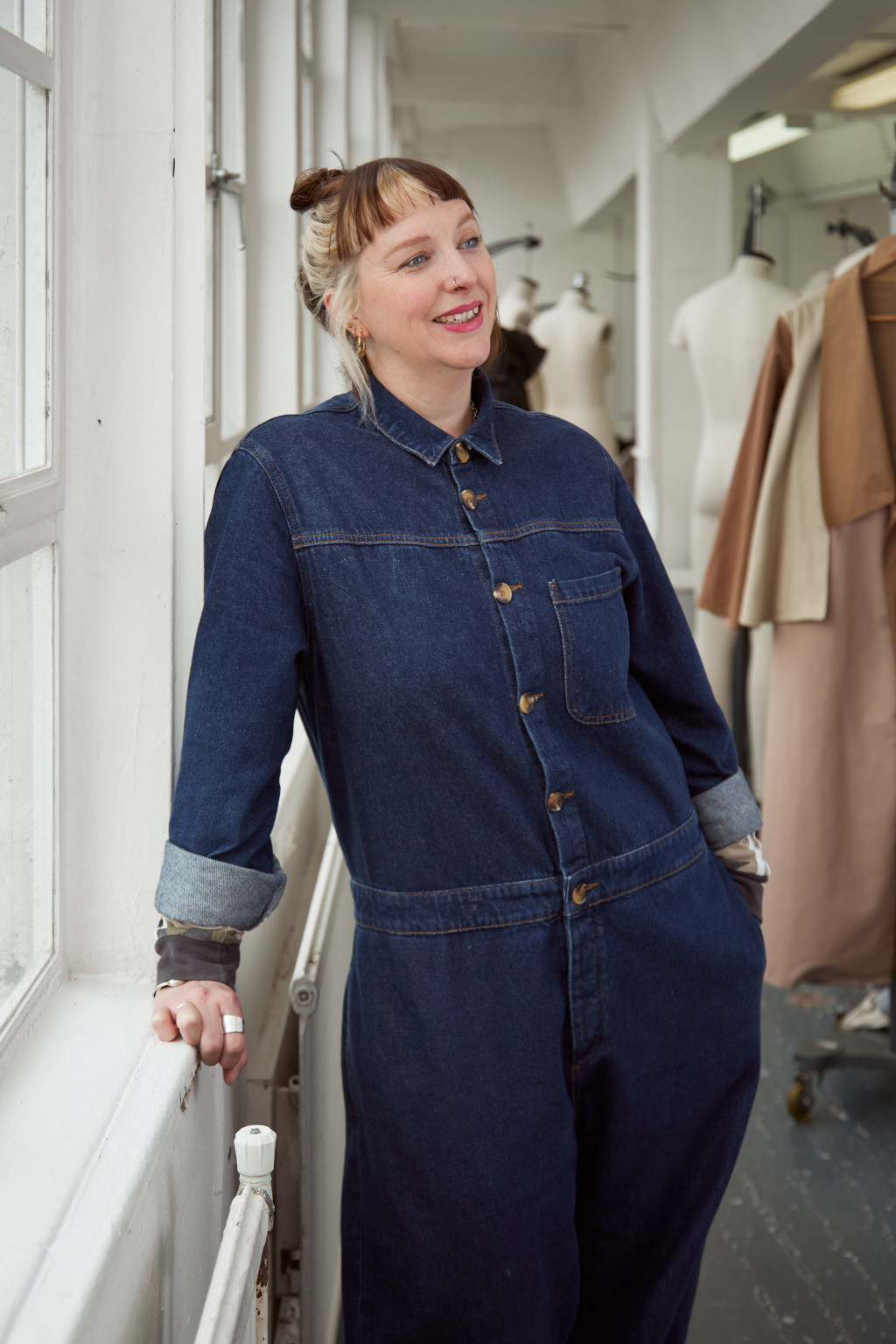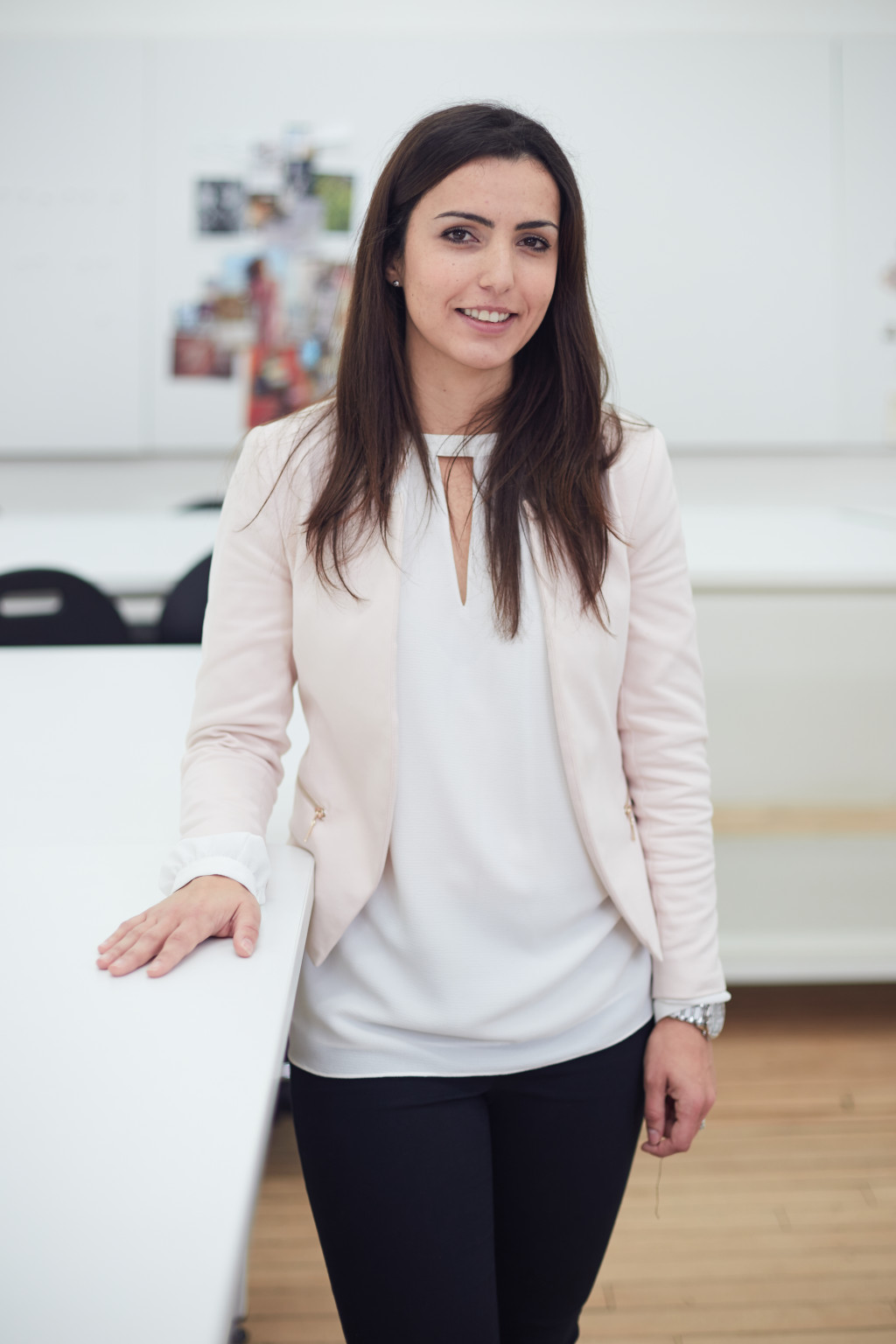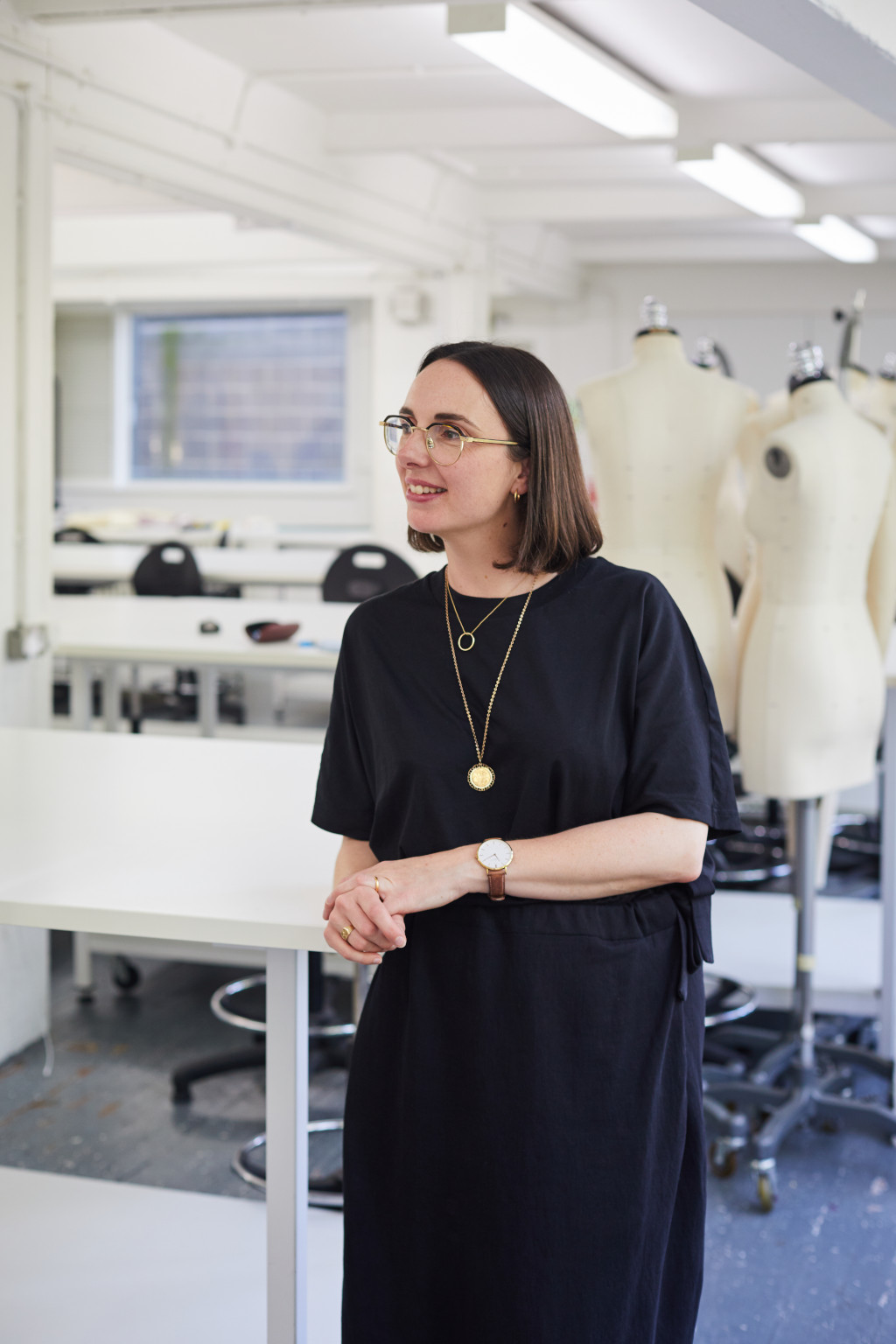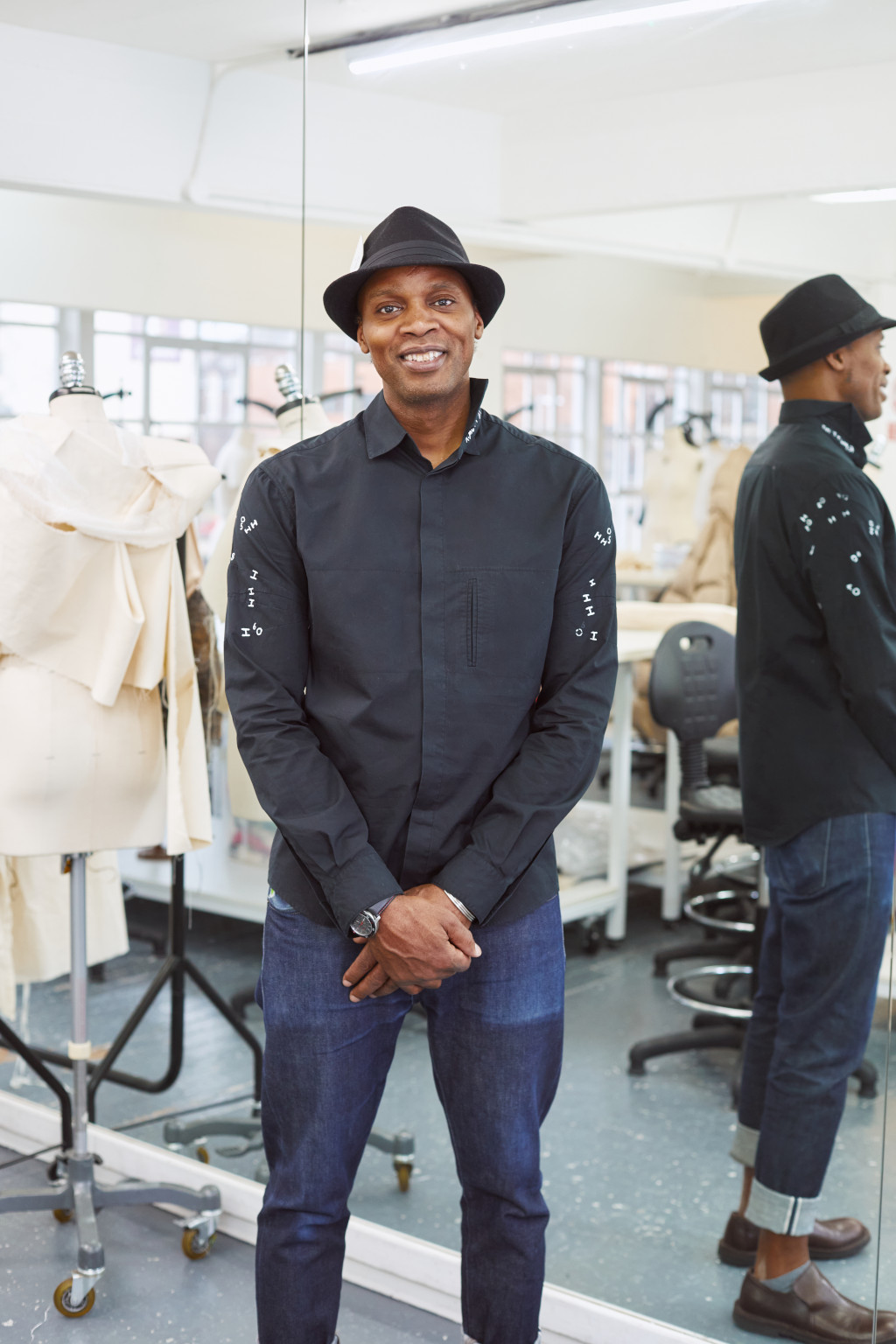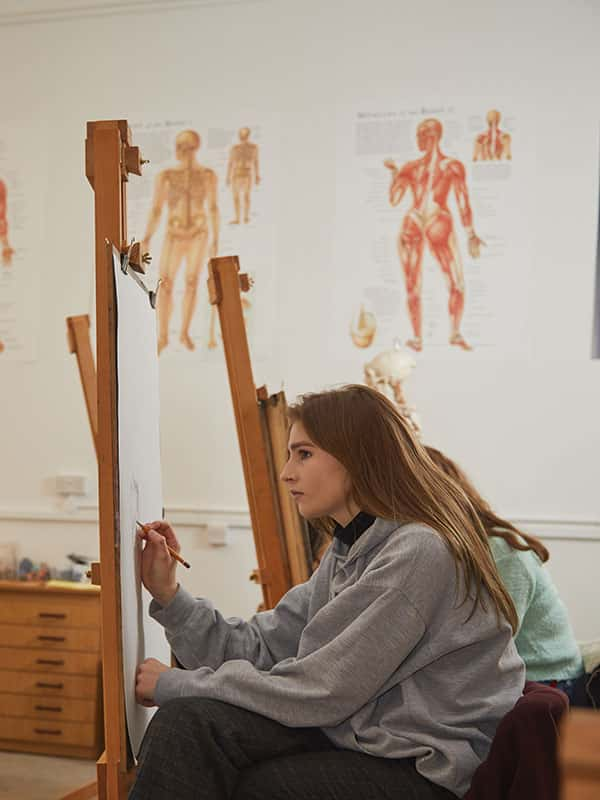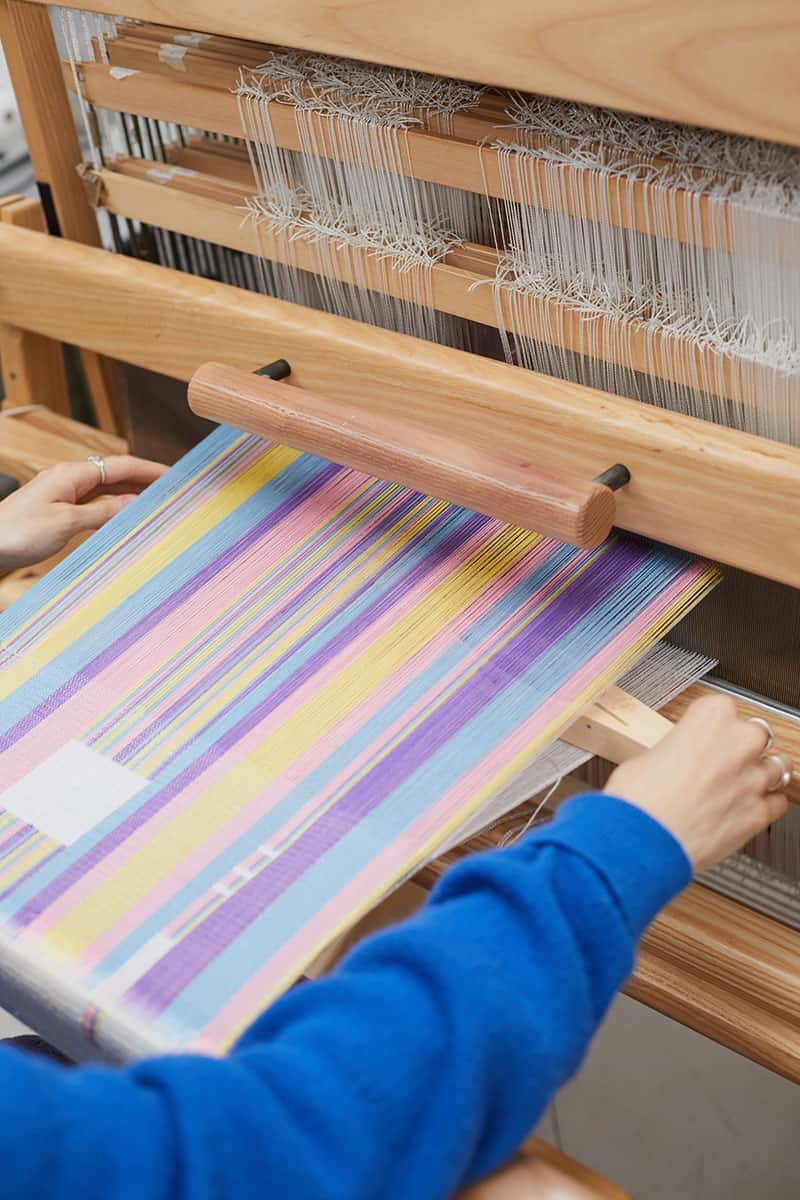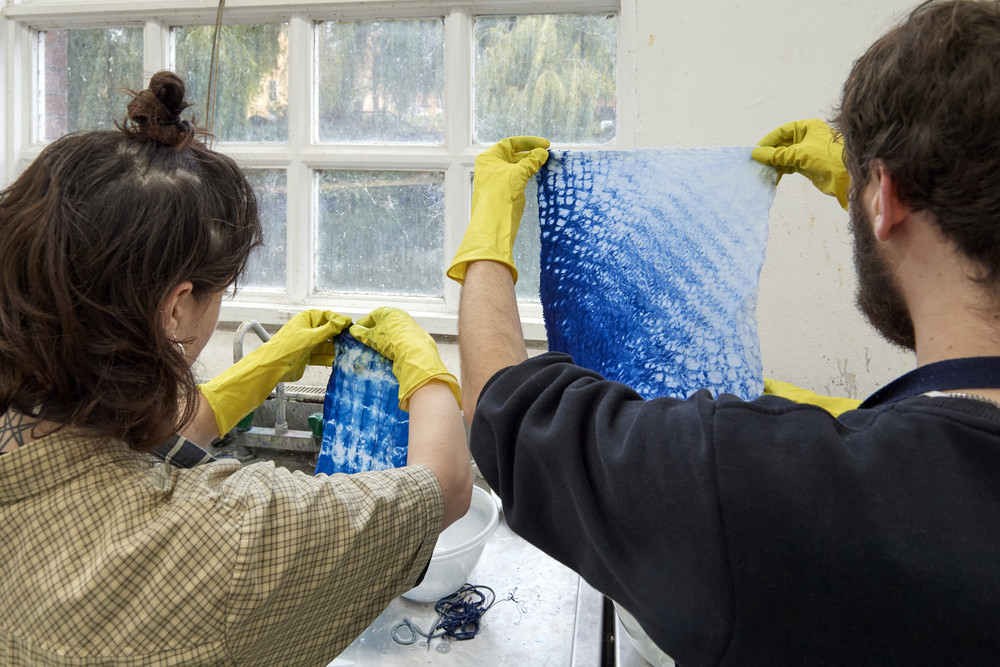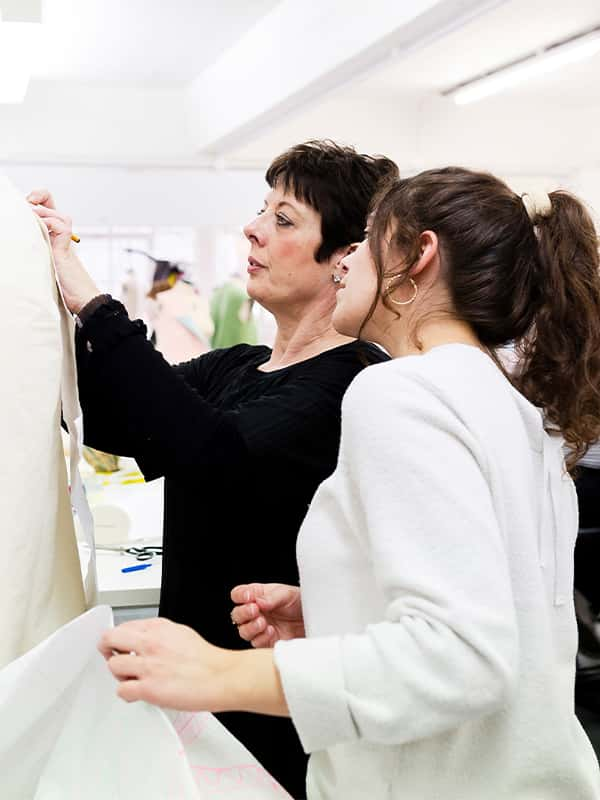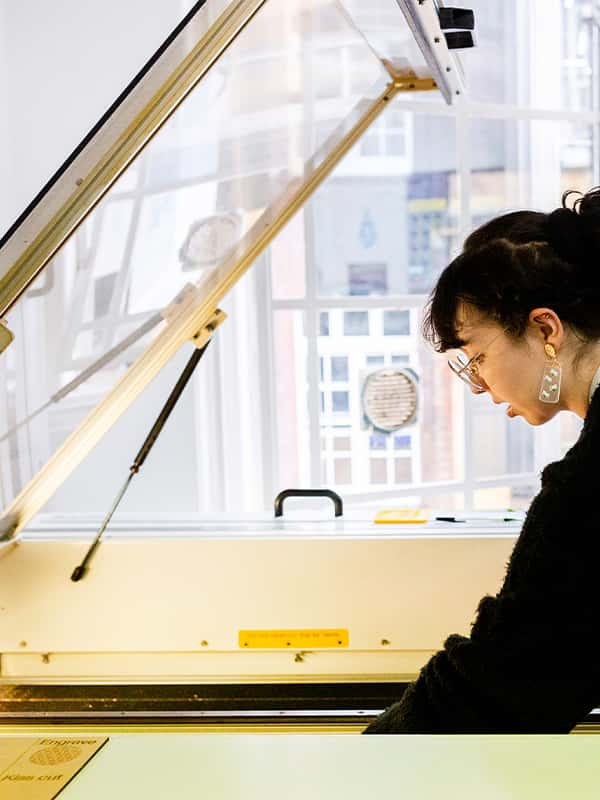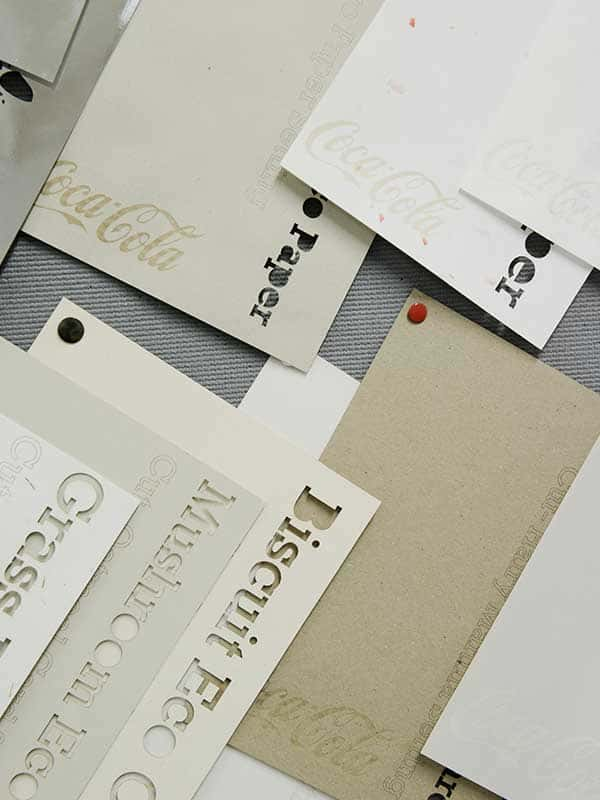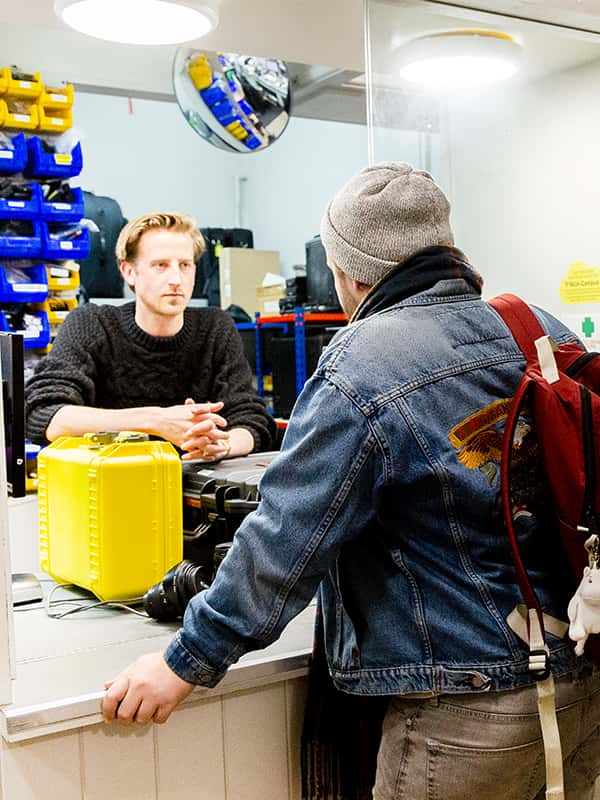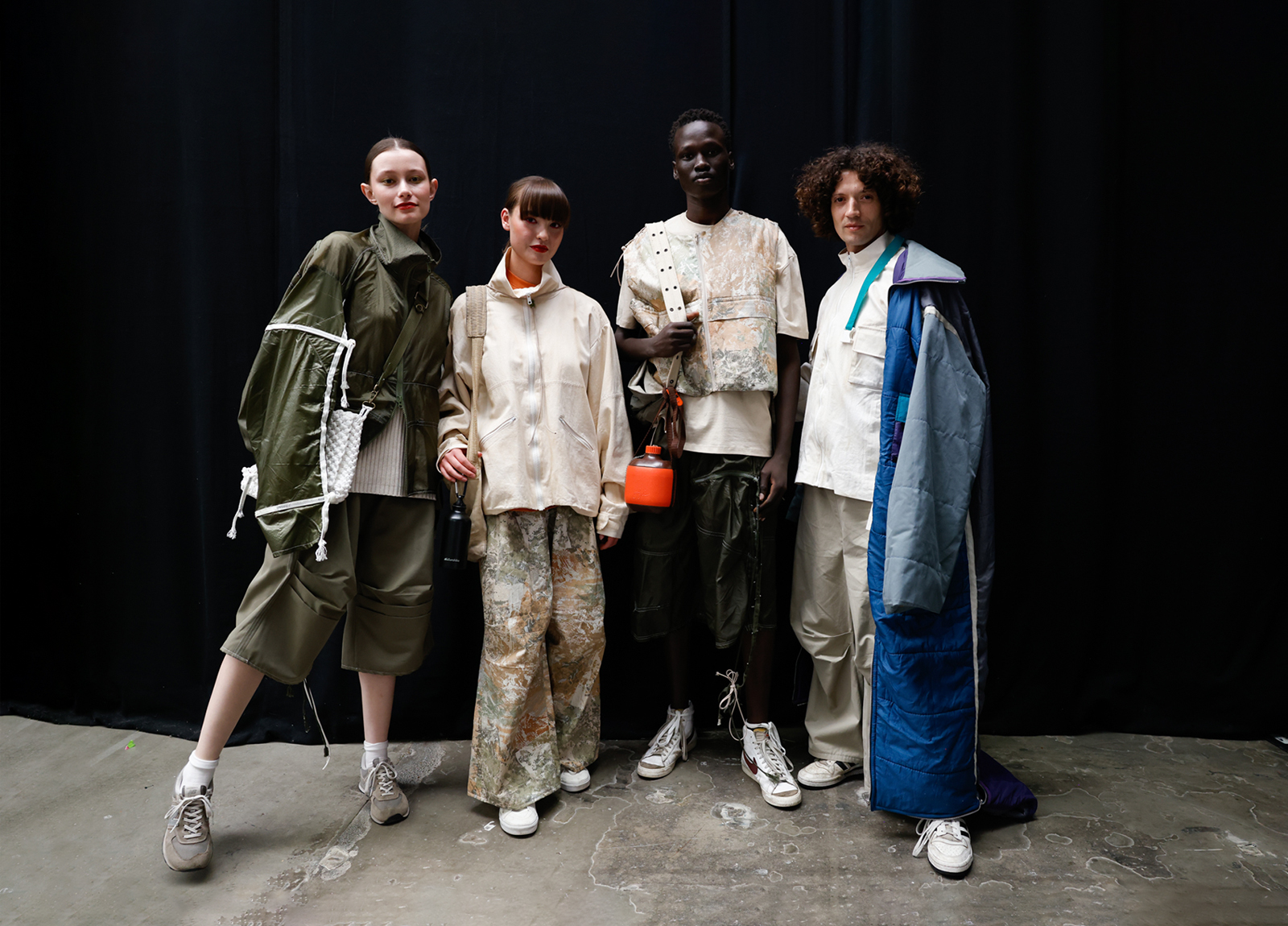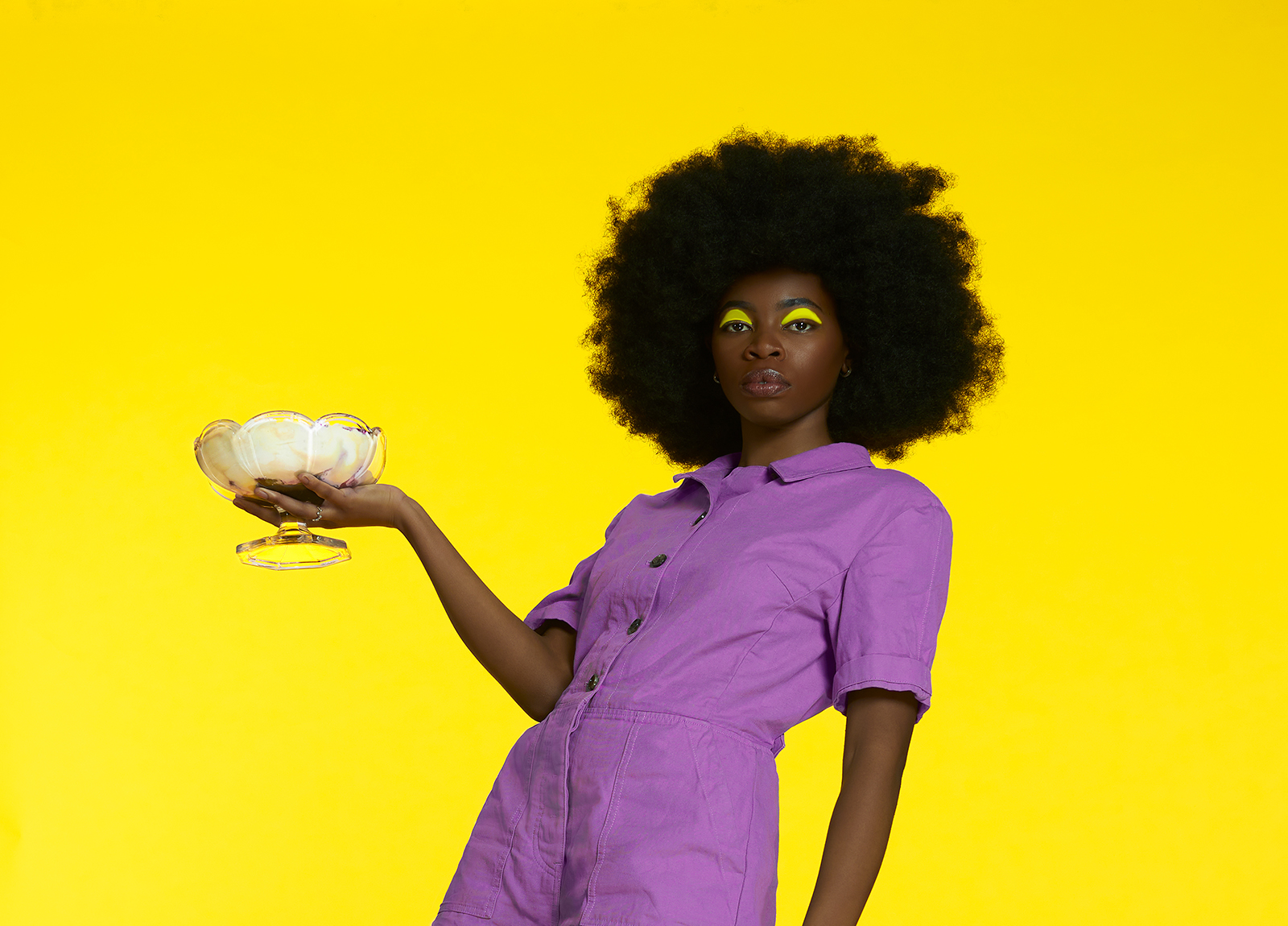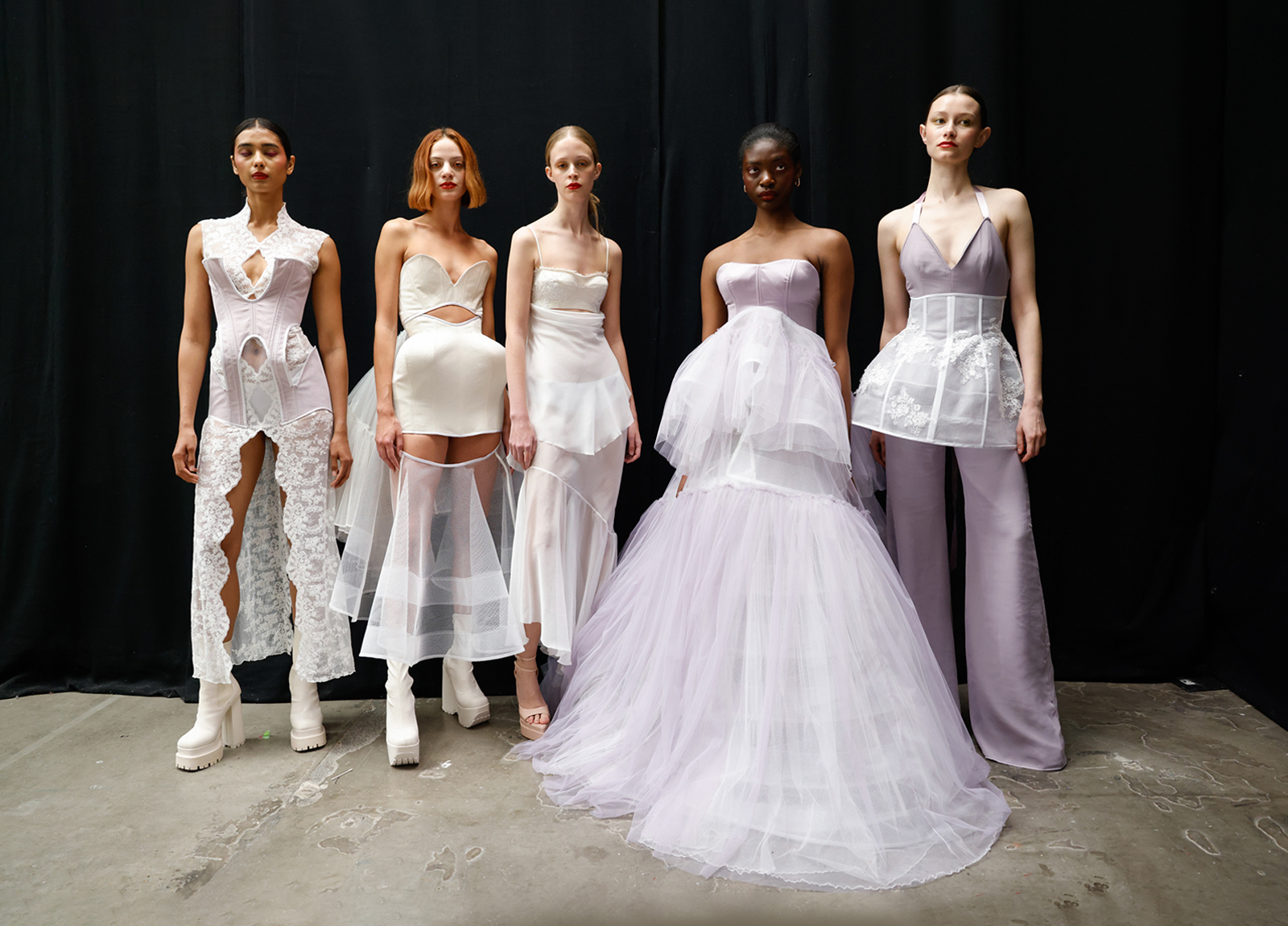
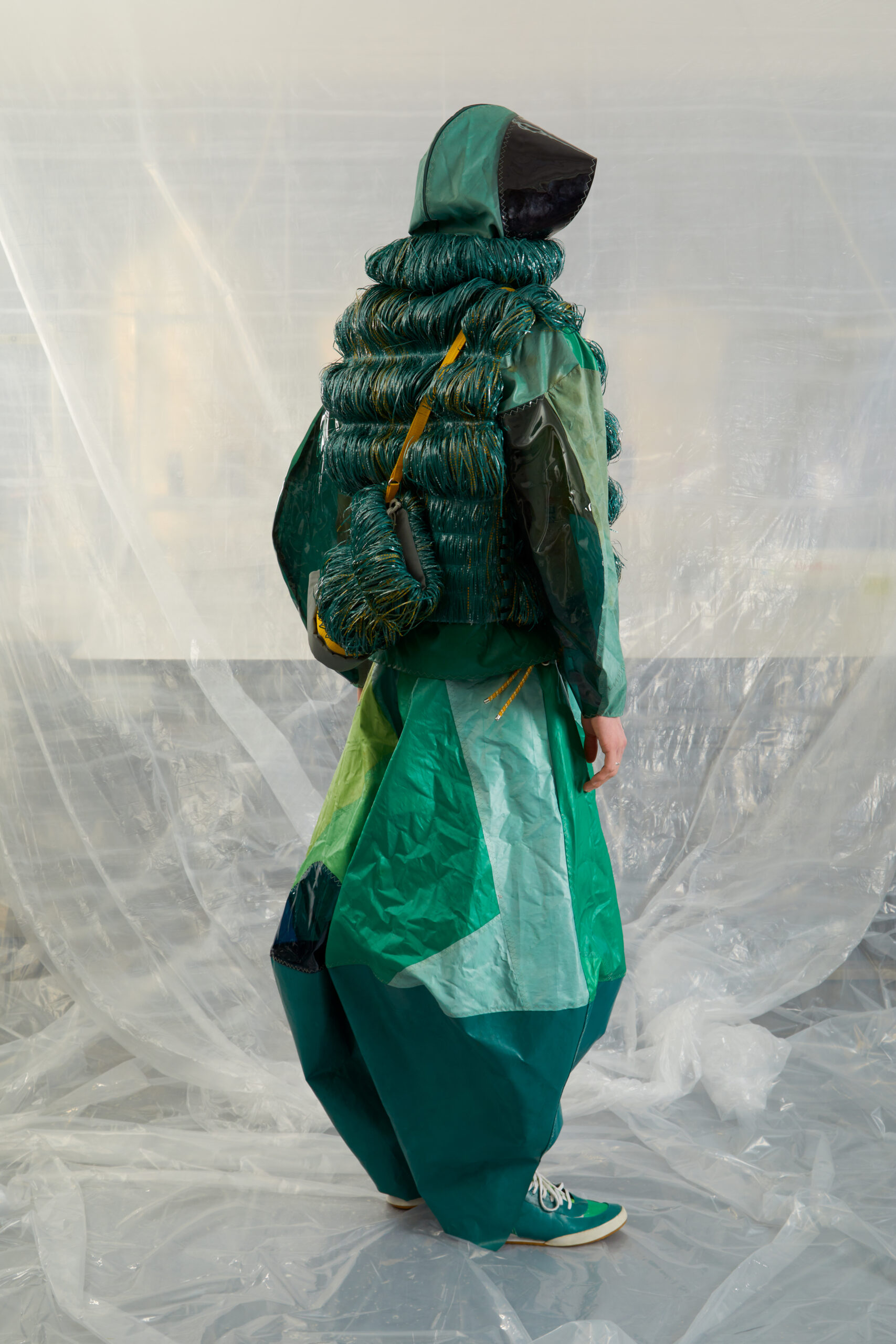
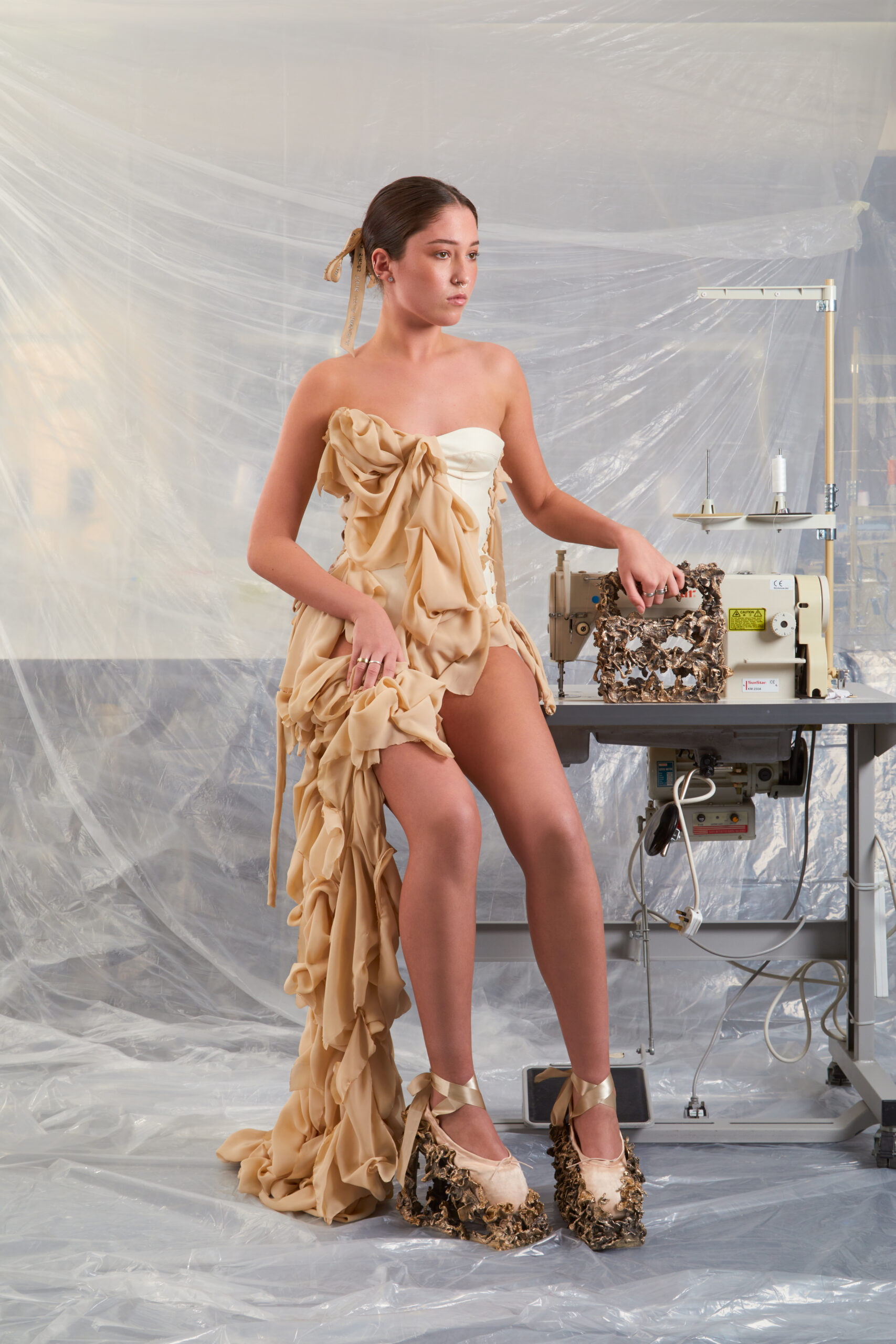
Fashion BA (Hons)
Let your creativity take flight as you learn the essential creative design and practical skills of the global fashion industry.
-
Course Duration
3 or 4 Year options
-
Course Options
- Diploma Year
- Intergrated Foundation Year
-
Typical Offer
104-120 UCAS Tariff Points
- How to Apply Request a prospectus
-
Annual Fees
- Home (full-time) £9,790
- Overseas (full-time) £18,860
-
UCAS code
- W233 (3 Year), W230 (4 Year)
- Institution code: N39
-
Course Start
September 2026
This future-oriented course equips graduates with adaptable skills to navigate a changing industry and prioritise ethical responsibility and inclusive design, combining creative thinking and technical skills. Our BA (Hons) Fashion emphasises visual research, conceptual thinking, material exploration, commercial awareness and professional communication within a supportive fashion community.
Our course will encourage you to explore concept development, pattern cutting, 3D digital rendering, tailoring and professional garment construction supported by technical skills and couture levels of craftsmanship. Guest lectures, seminars and workshops with acclaimed practitioners, stylists and academics will give you insight into how the industry works.
You will have access to studio space, specialist fashion design resources and well-equipped workshops run by on-site technical staff. Our Fashion studios and workshops are the right setting to develop your ideas and perfect essential skills such as drawing, digital design and professional presentation. We will help you to develop a professional portfolio to showcase your design identity and profile the quality of your manufactured garments to employers.
Accreditation and memberships
Our course benefits from close industry links and is a member of the British Fashion Colleges Council and the Graduate Fashion Foundation.
- Loading…
Why study with us
-
Study a fast-paced and varied curriculum of fundamental fashion in which the individual student voice is developed through personal choice of research topics, client profiles and creative outcomes.
-
Build an advanced technical skill base in pattern cutting, fabric development and manufacturing to create 3D garments.
-
Explore professional ways of communicating ideas and essential digital skills and build a strong fashion industry awareness.
-
Study core topics including contemporary narratives on craft practices and traditional skills, creative cut and digital fashion, as well as international relations, social, cultural and gender identities.
-
Undertake projects that push you to take creative risks with both ideation and execution. You’ll also gain practical experience through industry-focused projects with brands like John Lewis, Superdry and Ralph Lauren.
-
Live projects, competitions and industry placements help you engage in and build external networks and opportunities, preparing you to be industry-ready beyond graduation.
Course Details
Integrated Foundation Year (optional)
Integrated Foundation Year
Our Integrated Foundation Year is designed to equip students with the necessary skills, knowledge and confidence to thrive in their chosen degree subject. The course provides a comprehensive introduction to various disciplines, blending critical thinking and creative problem-solving with practical hands-on experience. This year serves as a bridge to undergraduate studies, allowing students to explore their interests within a supportive and inspiring environment, while familiarising themselves with the campus, workshops, and tutors.
Year 1
Core Units
Creative Learning (40 credits)
This first unit focuses on creative experimentation and the development of core technical skills. Throughout the unit you will be introduced to historical and contemporary designers and cultural, sustainable and ethical concepts – encouraging you to question how fundamental aspects of global design practice and theory can be used as research tools to develop design concepts and creative identity. You will gain insight into fibres and fabrics, engage in life drawing, and be introduced to design software. The unit also includes an introduction to flat pattern cutting, 3D manipulation, and fundamental construction and manufacturing techniques. You will be supported to discover the University’s resources and campus, to help you understand the fundamentals of studying at university level.
40 credits
Explore and Experiment (80 credits)
In this unit, you will explore and experiment with techniques and materials to enhance your creative skillset. Using an iterative approach, you will evolve your ideas through the development of your research process book, fabric/textile exploration, and the creation of 3D prototypes. You will further enhance relevant manufacturing techniques and creative pattern-cutting and draping methods, as well as further develop your design software skills to include Clo3D. Throughout this unit you will investigate how to communicate your design ideas in 2D, and 3D forms, with consideration towards ethical and sustainable practices. The unit will help you to strengthen your transferable skills through teamwork, presentation skills, organisation, and project planning. You will collaborate with final-year students across the department, assisting with their collections while gaining insight into a variety of industry sectors and roles to help support your personal career trajectory.
80 credits
Wayfinding Week
The first week of each academic year is called Wayfinding week. It’s an opportunity get your bearings, establish new connections and, after your first year at Norwich, re-establish old ones. Your course team will talk you through the year ahead and explain the expectations for the year. We’ll help you navigate new encounters and identify areas to focus on as you progress through your course.
Make it Manifest(o)
An important element of Wayfinding Week is taking part in our annual ‘Make it Manifest(o)’ project. Your course team will introduce the project in which we’ll ask you to consider your hopes and vision of the year ahead at Norwich and work with students in other year groups to bring your ideas to life. The project culminates in a celebratory display of work across the campus. The project will help you to develop your critical creativity through different approaches, concepts, and mediums. You’ll encounter diverse perspectives and build friendships and networks within our university community.
Interchange Week
Interchange weeks are opportunities to step away from your disciplinary studies and engage in projects, workshops, visits and talks that extend your knowledge and understanding of the world. Whether you learn a new skill or take part in a global challenge project with students from other courses, you will come away with new insights to take back to your course. Interchange is part of the schedule for all Norwich students with sessions held across and beyond the campus led by university staff, visiting lecturers and students.
Year 2
Core Units
Global Contexts (80 credits)
In this unit, you will explore and experiment with techniques, materials, and media. Through industry-based projects and workshops, you will apply your creative design ideas to practical and creative fashion design skills and problem-solving through 2D and 3D experimentation. You will explore a range of manufacturing and finishing techniques and alternative methods of pattern-cutting and draping, as well as develop your design software skills, including Clo3D. Using an iterative approach, you’ll evaluate your work by developing research process books and 3D prototyping and sample development, with an emphasis on ethical and sustainable practices. The unit will introduce you to fashion sectors and career paths and increase your knowledge of teamwork, presentation skills, organisation and project planning.
80 credits
Collaboration (40 credits)
This unit focuses on helping you understand your practice in a broader context through collaboration and working together in mixed teams on projects, where you will use your creative ideas to generate solutions to a challenge or brief. Understanding and utilising different perspectives and practices the projects will allow you to explore how creativity can make an impact in society by understanding the client’s needs, problem solving, experimentation, and risk-taking. This collaborative learning experience will expose you to a range of new processes and approaches that will develop your creative thinking.
40 credits
Core Projects
Wayfinding Week
The first week of each academic year is called Wayfinding week. It’s an opportunity get your bearings, establish new connections and, after your first year at Norwich, re-establish old ones. Your course team will talk you through the year ahead and explain the expectations for the year. We’ll help you navigate new encounters and identify areas to focus on as you progress through your course.
Make it Manifest(o)
An important element of Wayfinding Week is taking part in our annual ‘Make it Manifest(o)’ project. Your course team will introduce the project in which we’ll ask you to consider your hopes and vision of the year ahead at Norwich and work with students in other year groups to bring your ideas to life. The project culminates in a celebratory display of work across the campus. The project will help you to develop your critical creativity through different approaches, concepts, and mediums. You’ll encounter diverse perspectives and build friendships and networks within our university community.
Interchange Week
Interchange weeks are opportunities to step away from your disciplinary studies and engage in projects, workshops, visits and talks that extend your knowledge and understanding of the world. Whether you learn a new skill or take part in a global challenge project with students from other courses, you will come away with new insights to take back to your course. Interchange is part of the schedule for all Norwich students with sessions held across and beyond the campus led by university staff, visiting lecturers and students.
Diploma Year (optional)
Level 5 Diploma (120 credits)
Students have the opportunity to spend a year after the second of their degree (or the third year if studying for a degree with an Integrated Foundation Year) enhancing their employability options through a Level 5 Diploma. They can choose from courses designed to provide:
- opportunities to gain industry insight, developing employability skills through a series of supported experiences, expanding professional networks and building confidence in the workplace, or
- an introduction to creative computing, building an understanding of how coding skills can be used to advance and complement creative practice.
Final Year
Core Units
Research and Preparation (40 credits)
This is the first and shorter of the two units that make up your final year of undergraduate study. You’ll develop strong conceptual and practical skills through extensive research, design development, original pattern cutting and craftsmanship, technical refresher sessions, campus workshop refreshers, and identifying software for CAD, laser cutting, and practical digital practices. The unit examines future and emerging practices, guiding students to find their creative identity and investigate ideas through live briefs and competitions. You will produce a research report on a topic broadly related to fashion and your practice, expanding on the research ideas developed in your second year. You’ll apply various research methods and methodological approaches, informed by your approach to your creative practice and future career aspirations.
40 credits
Resolution and Career Development (80 credits)
Your final unit allows you to research, conceptualise, and create a self-determined final-year project(s), building on the skills, knowledge and understanding you have gathered throughout the programme. Throughout the unit, you will continue to enhance your creative approaches by engaging in workshops, fostering a critical mindset and mastery of materials, technologies, and processes. The year will include opportunities to engage with industry through live projects, competitions, or professional bodies, including Graduate Fashion Week and the British Fashion Council. The year will culminate in showcasing your collection/product and portfolio for a catwalk show or exhibition to a range of audiences and providing opportunities for your ongoing personal and professional development.
80 credits
Core Projects
Wayfinding Week
The first week of each academic year is called Wayfinding week. It’s an opportunity get your bearings, establish new connections and, after your first year at Norwich, re-establish old ones. Your course team will talk you through the year ahead and explain the expectations for the year. We’ll help you navigate new encounters and identify areas to focus on as you progress through your course.
Make it Manifest(o)
An important element of Wayfinding Week is taking part in our annual ‘Make it Manifest(o)’ project. Your course team will introduce the project in which we’ll ask you to consider your hopes and vision of the year ahead at Norwich and work with students in other year groups to bring your ideas to life. The project culminates in a celebratory display of work across the campus. The project will help you to develop your critical creativity through different approaches, concepts, and mediums. You’ll encounter diverse perspectives and build friendships and networks within our university community.
Interchange Week
Interchange weeks are opportunities to step away from your disciplinary studies and engage in projects, workshops, visits and talks that extend your knowledge and understanding of the world. Whether you learn a new skill or take part in a global challenge project with students from other courses, you will come away with new insights to take back to your course. Interchange is part of the schedule for all Norwich students with sessions held across and beyond the campus led by university staff, visiting lecturers and students.
Download course specifications
Learning and teaching
This course is taught through a mixture of learning and teaching methods including:
-
Group briefings
-
Academic tutorials
-
Group tutorials
-
Workshops
-
Critiques (crits)
-
Seminars
-
Lectures
Assessment
Assessment for this course is entirely coursework-based, meaning there are no exams. Your progress will be evaluated through the projects and assignments you complete for each unit. Throughout the year, you’ll receive ongoing feedback to help you refine your work and develop your skills. To support your learning and ensure you achieve the course outcomes, we use a variety of assessment methods, including:
- Finished pieces of work
- Presentations
- Written work
- Your research
- A reflective journal
Some of the people you’ll be working with
Our Facilities
Look around our city-centre campus, and you will find studios, media labs, and creative spaces in 13 buildings that sit among the cafés, bars, independent galleries and shops of Norwich’s cultural quarter.
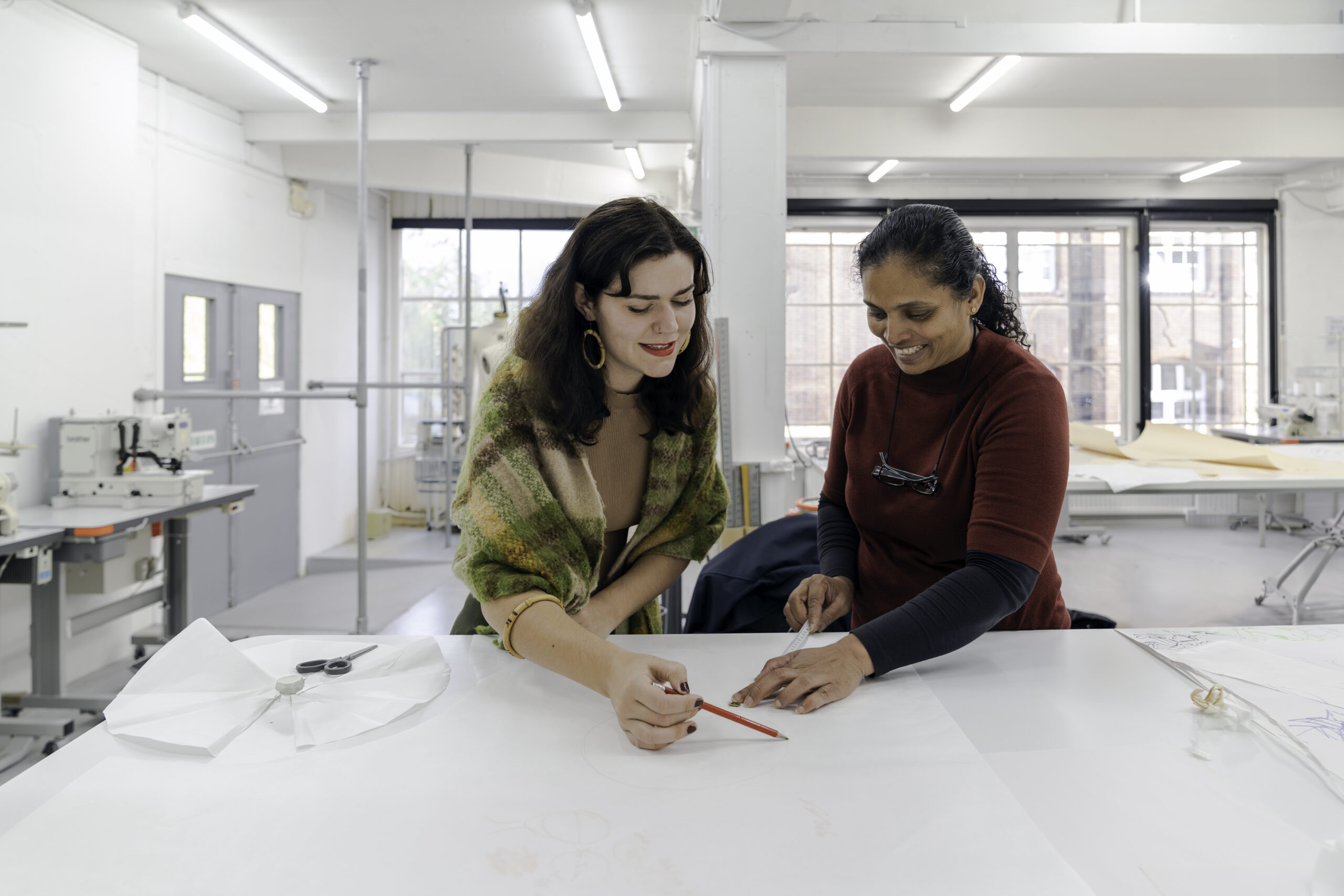
Typical career paths
During the final year of the course, through practical and theoretical research, development, and outcomes, you’ll identify a personal strategy that sets you up for career success.
Our students gain industry recognition through success in competitions with British Fashion Council, Graduate Fashion Week, Anne Tyrrell Student Design Award, Golden Shears and the international Arts of Fashion awards.
Graduates have secured diverse fashion, design and manufacturing-related roles at H&M, Ted Baker, Victoria Beckham, Marks & Spencer, Outfit Arcadia Group, Blakely and Yarmouth Oilskins. Others have progressed to post graduate research, in areas such as bio-material research and creative health for art therapy. Some graduates secure education roles in school and post-16 providers while others establish their own businesses.
- Freelance Designer
- In-House Designer
- Bespoke Tailor
- Creative Pattern Cutter
- Buyer
- Design Consultant
- Fashion Illustrator
- Garment Technologist
- Visual Merchandiser
- Fashion Stylist
Other graduates have progressed to postgraduate research, in areas such as bio-material research and creative health for art therapy. Some graduates secure education roles in school and post-16 providers while others establish their own businesses.
“92% of our graduates are in employment or further education within six months of graduating”
Graduate Outcomes 2021
Entry requirements
Home
Norwich University of the Arts welcomes applicants of all ages from all backgrounds.
If the qualification that you are studying is not shown, do not worry as we are able to accept other pre-entry qualifications as well as combinations of different qualifications.
Please do contact our Student Recruitment Team if you have any queries.
A/AS Levels (GCE)
GCE A/AS Levels 3 A-level qualifications at grades BCC (104 UCAS Tariff points) or above. Where candidates are not taking 3 A-levels, Norwich University of the Arts will consider combinations of A-level/AS-level and other Level 3 qualifications.
BTEC Extended Diploma (QCF or RQF)
Distinction, Merit, Merit in an art, design or media related subject
BTEC Diploma (QCF or RQF)
Distinction*, Distinction* in an art, design or media related subject
T Levels
A T Level in any subject with overall grade A* to C (Pass)
UAL Extended Diploma
Merit
UAL Level 3 Foundation Diploma in Art and Design
Pass
UAL Level 4 Foundation Diploma in Art and Design
Pass
Foundation Diploma in Art and Design
Pass
Access to Higher Education Diploma (Art and Design)
Pass
International Baccalaureate Diploma
A minimum of 26 points
Integrated foundation year (optional)
Norwich University of the Arts welcomes applicants of all ages from all backgrounds.
If the qualification that you are studying is not shown, do not worry as we are able to accept other pre-entry qualifications as well as combinations of different qualifications.
Please do contact our Student Recruitment Team if you have any queries.
A/AS Levels (GCE)
GCE A/AS Levels 2 A-level qualifications at grades CC (64 UCAS Tariff points) or above.
BTEC Extended Diploma (QCF or RQF)
Merit, Merit, Pass in an art, design or media related subject
BTEC Diploma (QCF or RQF)
Distinction*, Merit in an art, design or media related subject
T Levels
Pass (D or E on the core)
UAL Extended Diploma
Pass
UAL Level 3 Foundation Diploma in Art and Design
Pass
UAL Level 4 Foundation Diploma in Art and Design
Pass
Foundation Diploma in Art and Design
Pass
International Baccalaureate Diploma
A minimum of 26 points
Overseas
We accept qualifications from all over the world.
To find our entry requirements from a specific country, please check our dedicated international pages.
English language qualifications
Most international students are required to hold an English language qualification. Applicants are required to have a minimum UKVI approved IELTS exam score of 6.0 overall, with a minimum of 5.5 in each section. Equivalent English language qualifications are acceptable such as, IB English language syllabus A or B/English Literature (Grade 4).
We also accept some alternative English qualifications. Learn more about our English entry requirements.
You can email us on international@norwichuni.ac.uk if you’d like to discuss your application individually.
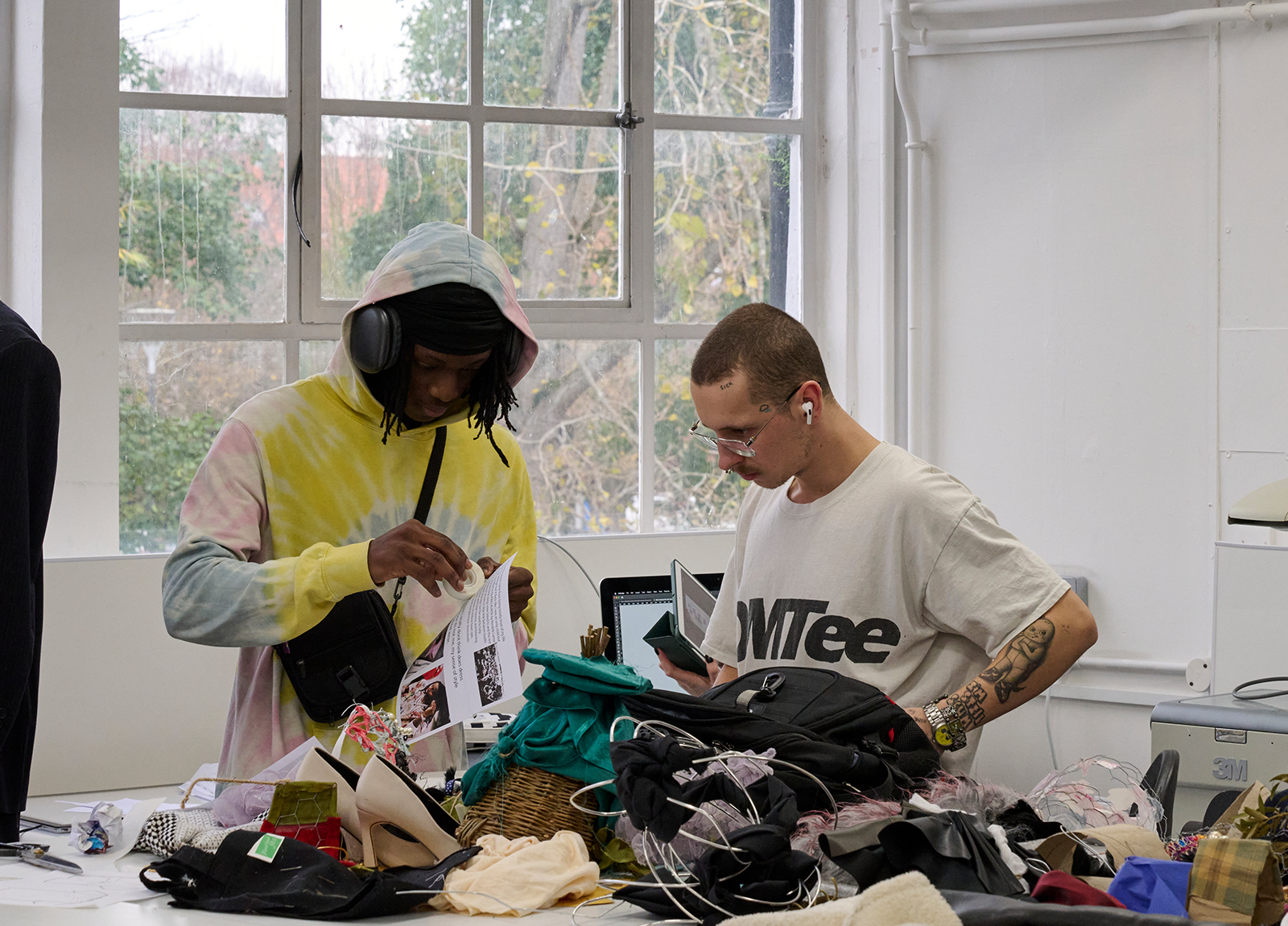
Fees and funding
Home
Tuition fees for the 2026/27 academic year
- BA course (three year): £9,790 per year
- Integrated Foundation Year (optional): £9,790 per year
- Level 5 Diploma Year (optional): £9,790 year
The level of fee that you will be asked to pay depends on whether you’re classed as a UK (home) or international student. Check your fee status.
Fees for subsequent years
Tuition fees may increase in subsequent years in line with inflation, subject to government regulations. The inflation rate used is expected to be the Retail Price Index excluding mortgage payments (RPIX). We would confirm this in advance to you of each academic year.
Find our more about fees and funding
Funding your study
Depending on your circumstances, you may qualify for a bursary, scholarship or loan to help fund your study and enhance your learning experience.
International
Tuition fees for the 2026/27 academic year
- BA course (three year): £18,860
- Integrated Foundation Year (optional): £18,860
- level 5 Diploma year (optional): £18,860
The level of fee that you will be asked to pay depends on whether you’re classed as a UK (home) or international student. Check your fee status.
Fees for subsequent years
For Overseas students starting in 2026 inflation will be applied to your fees in later years. We will confirm this in advance to you of each academic year, and we will limit the increase to no more than the Office for Students’ recommended inflationary measure.
Find our more about fees and funding
Funding your study
Please take a look at our International students page for information about fees, scholarships for international students, visas and much more.
Additional costs
Your course fees cover the cost of studies, and include loads of benefits, such as the use of our library, support from our expert employability team, access to workshops and free use of the IT equipment across our campuses. There are also other costs which you may need to consider.
How to apply
Home
All applications for undergraduate courses will need to be made via the Universities and Colleges Admissions Service (UCAS).
You’ll need our university UCAS code (N39) as well as your course code which you’ll find on your course page.
When you register with UCAS you will need include your previous and current qualifications information, personal statement, and reference.
Once we receive your application form through UCAS, we will email confirmation that we have received it and will give you access and instructions for logging into the applicant portal. Our decision will be communicated via UCAS.
Applying for an undergraduate degreeInternational
Full-time Undergraduate International applicants can either apply via UCAS or directly by completing the online application form below or emailing the downloadable form to ioadmissions@norwichuni.ac.uk
Online Application Form (opens in a new window)For further support for international applicants applying for an undergraduate degree view our international pages.
-
Molly Green
Fashion BA (Hons)
Emily Bates
Fashion BA (Hons)
Michael Rixon
Fashion BA (Hons)
Ella Taylor
Fashion BA (Hons)
Ciara Spencer
Fashion BA (Hons)
Emily Rose
Fashion BA (Hons)

Latest news
-
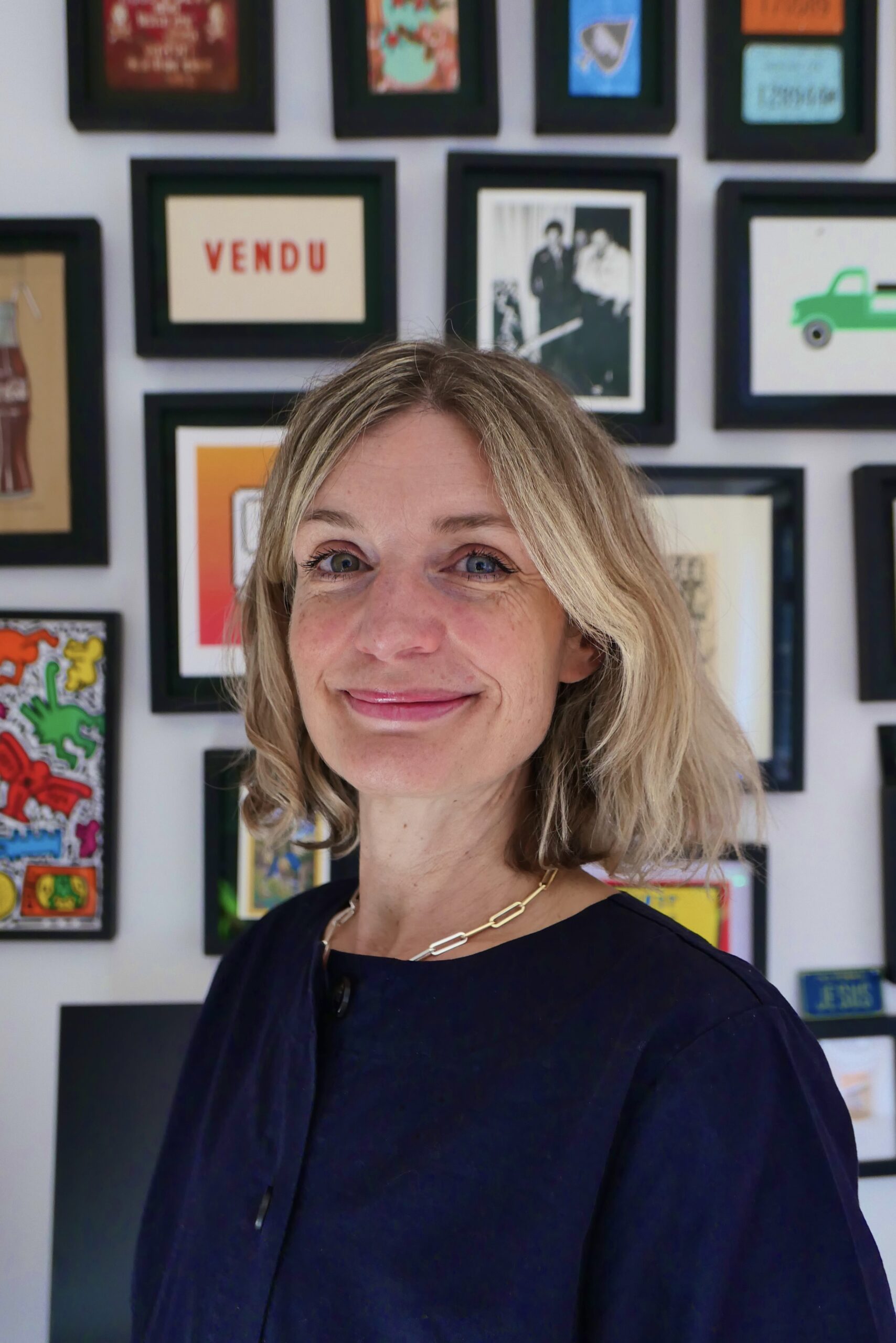 Institution •
Institution •Norwich appoints new Deputy Vice-Chancellor
Norwich University of the Arts is pleased to announce the appointment of Rebecca Wright as its new Deputy Vice-Chancellor. -
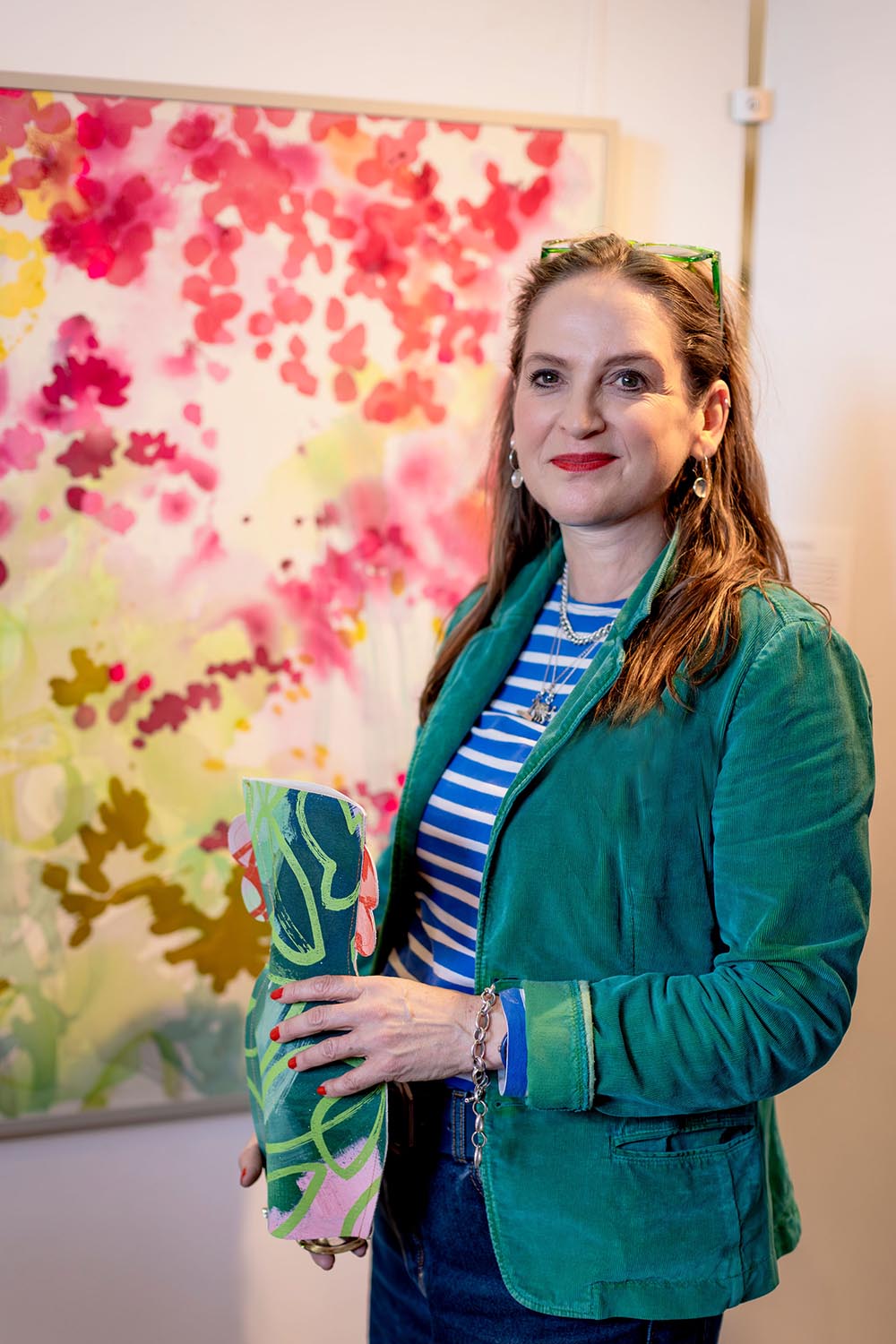 BA Textile Design •
BA Textile Design •In conversation with: Lucy Perry, MA Textile Design
Lucy shares her experience of creating a 360° digital installation, in a collaborative exploration of nature and technology. -
 Institution •
Institution •Norwich University of the Arts earns prestigious 5-star QS Star Excellence rating fo Teaching
Norwich University of the Arts has been awarded an overall four-star rating in the prestigious QS Stars University Ratings, marking a significant milestone in the University’s first-ever submission to the internationally recognised assessment framework. -
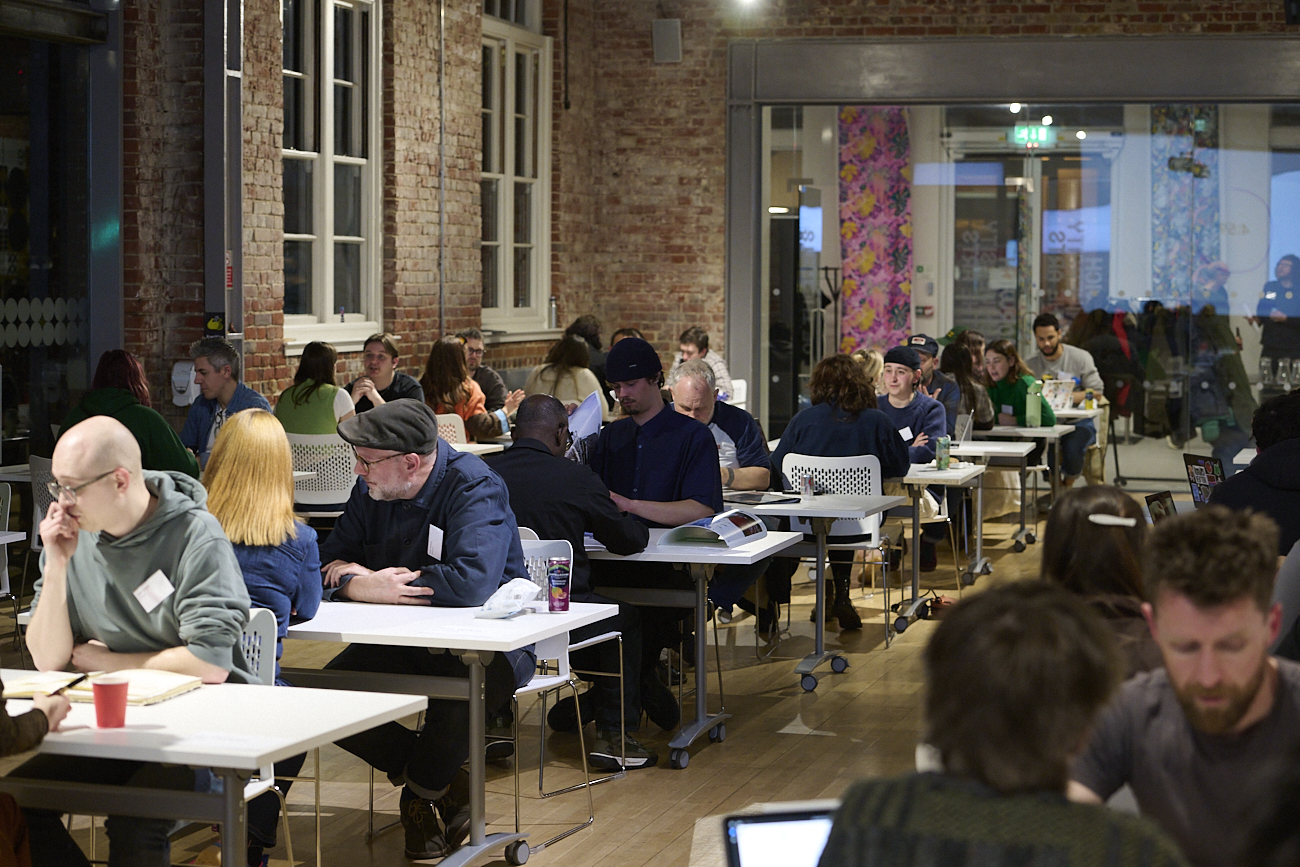 Employability •
Employability •Norwich University of the Arts celebrates 10 years of the Big Book Crit
Hundreds of Norwich students have shared their work with leading creative professionals over the last decade. -
 East Gallery •
East Gallery •Announcing the East Gallery Fellows 2025-2026
Norwich University of the Arts is pleased to announce the selected awardees of this year's East Gallery Fellowship. -
 BA Business Management •
BA Business Management •Dean of Creative Education Awarded Prestigious Principal Fellowship from Advance HE
The University is delighted to announce that Hilary Carlisle, Dean of Creative Education and Professor of Design, has been awarded Principal Fellowship of the Higher Education Academy (PFHEA) by Advance HE -
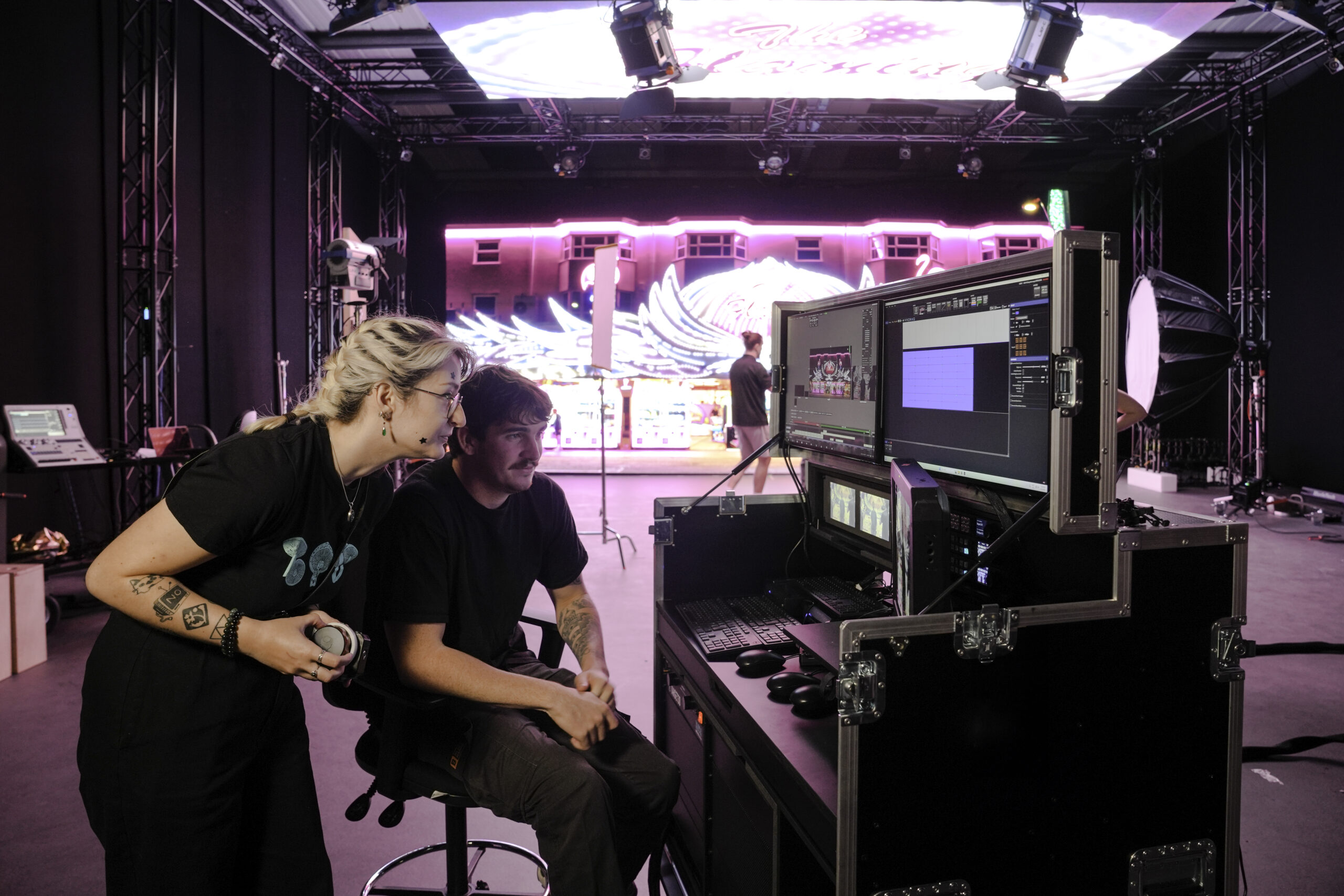 BA Degree •
BA Degree •Norwich University of the Arts to Host ELIA Academy 2027
Norwich University of the Arts is delighted to announce that it has been selected as the host institution for the ELIA Academy 2027. -
 BA Business Management •
BA Business Management •In conversation with Norwich’s newest lecturers in Marketing and Business Management
We joined Norwich's newest lecturers, Stephen Balmer-Walters and Laurie McAllister, to find out more about the University's Marketing and Business Management courses. -
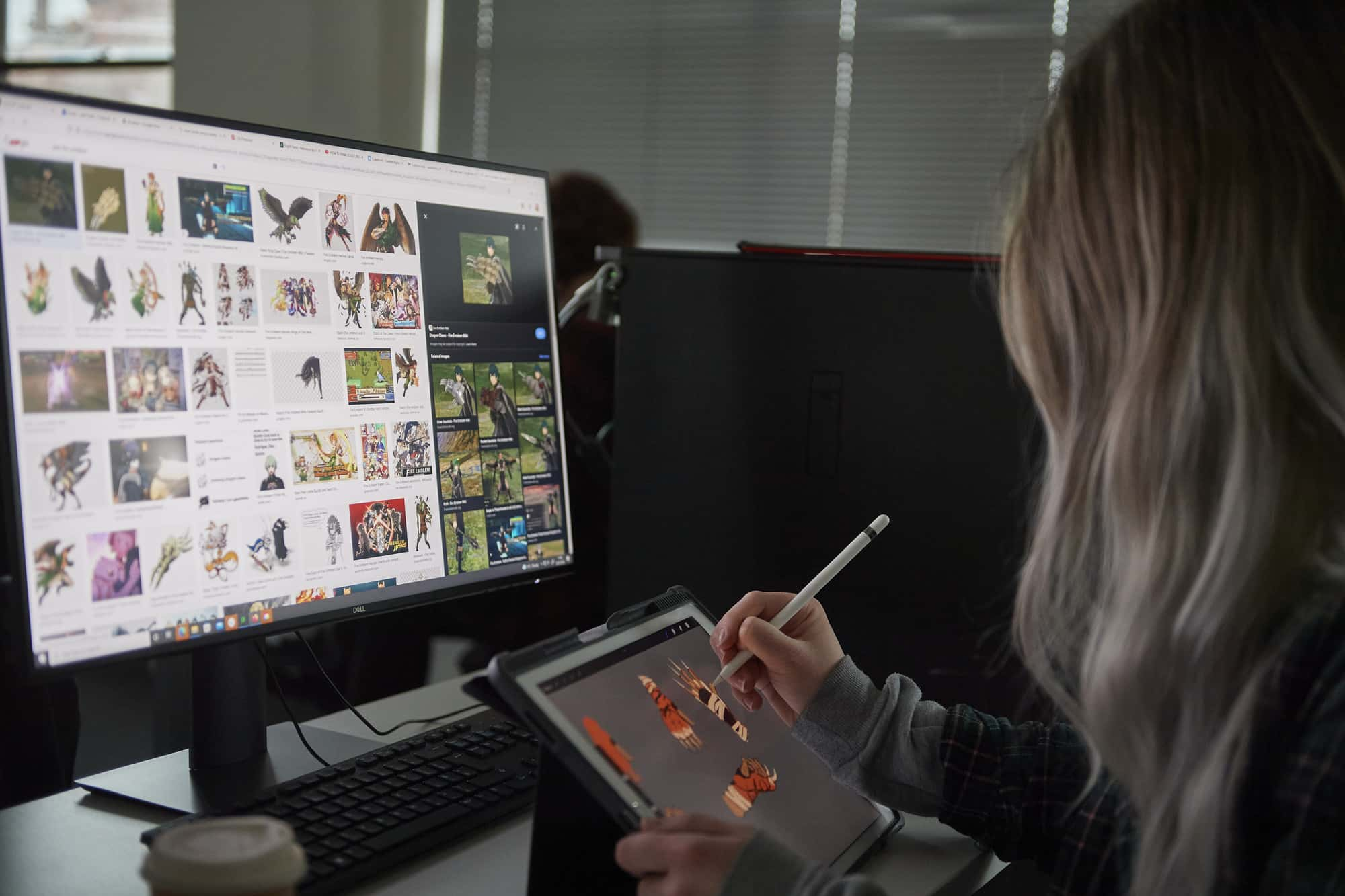 BA Games Art and Design •
BA Games Art and Design •East of England set to become UK’s next Games Cluster, says landmark report
A major new report is calling for the creation of a Games Cluster for the East of England — positioning the region as a national leader in creative technology and immersive media. -
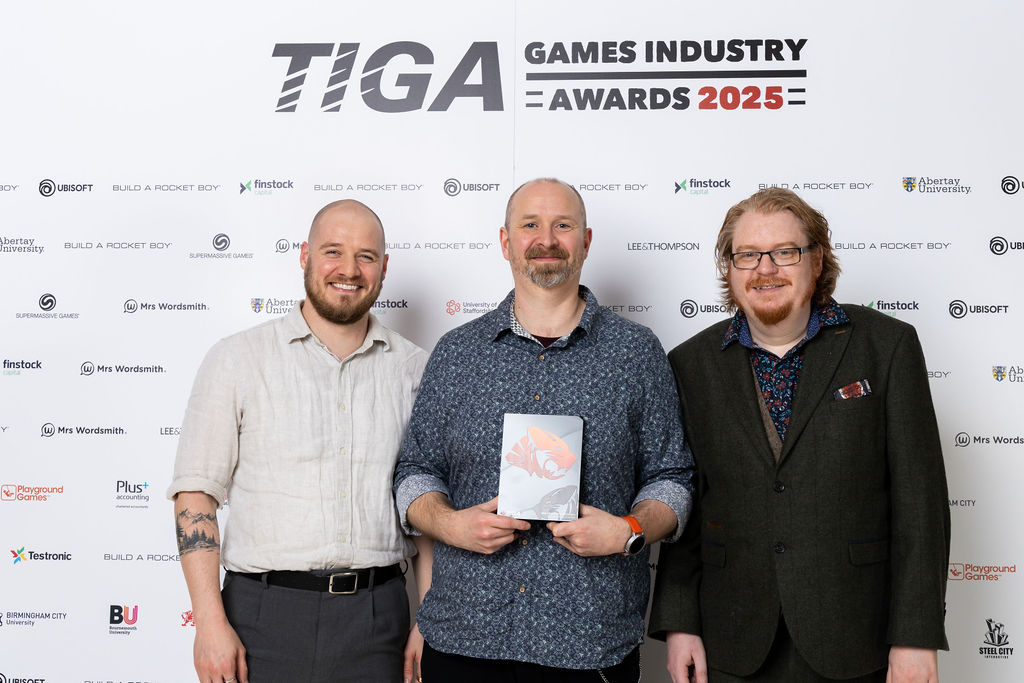 BA Games Art and Design •
BA Games Art and Design •Norwich awarded Best Education Initiative at the TIGA UK Games Industry Awards
TIGA, who represent the UK video games industry, have recognised the University’s commitment to graduate success and industry-focused learning in their 2025 awards. -
 BA Animation •
BA Animation •Cutting edge Sony Virtual Production Studio puts Norwich on the map for the future of film and gaming
Norwich University of the Arts and Sony open new landmark facility for students, creators and the community. -
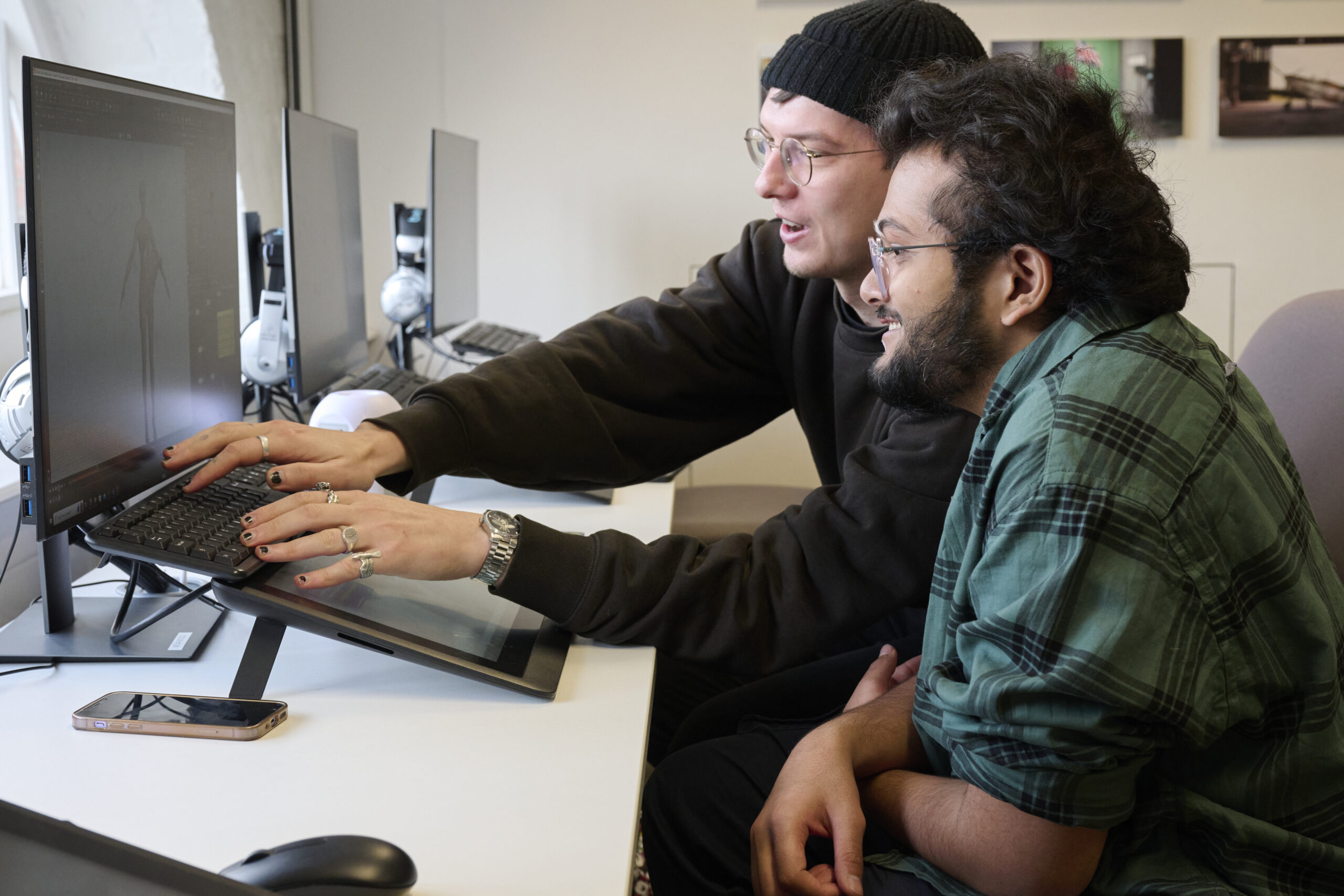 BA Animation •
BA Animation •Norwich named top UK university for production excellence in visual effects
The University has been placed in three categories in the 2025 Rookies Global School Rankings, including the top five for Production Excellence – Visual Effects. -
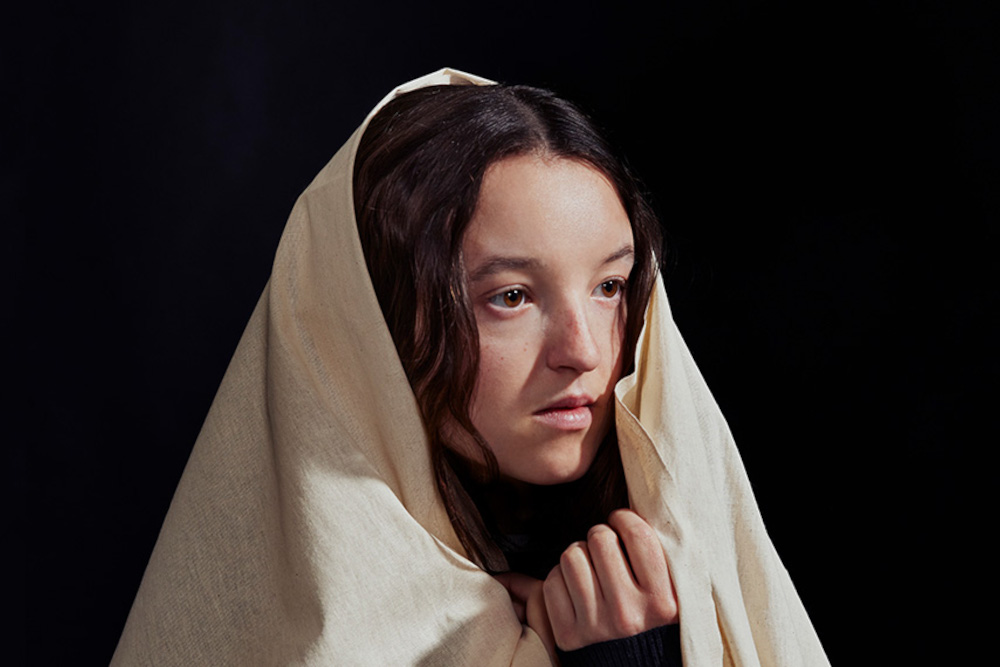 BA Photography •
BA Photography •Entries open for Norwich's 2026 Beyond the Frame photography competition
Entries are now open for our annual photography competition, open to students aged 11 to 19 around the world. -
 BSc Degree •
BSc Degree •Norwich University welcomes new academics to its Psychology and Computer Science courses
Lyndsey Wallace joins the University as Senior Lecturer for BSc (Hons) Psychology, with Jawwad Chattha joining as Course Leader for BSc (Hons) Computer Science. -
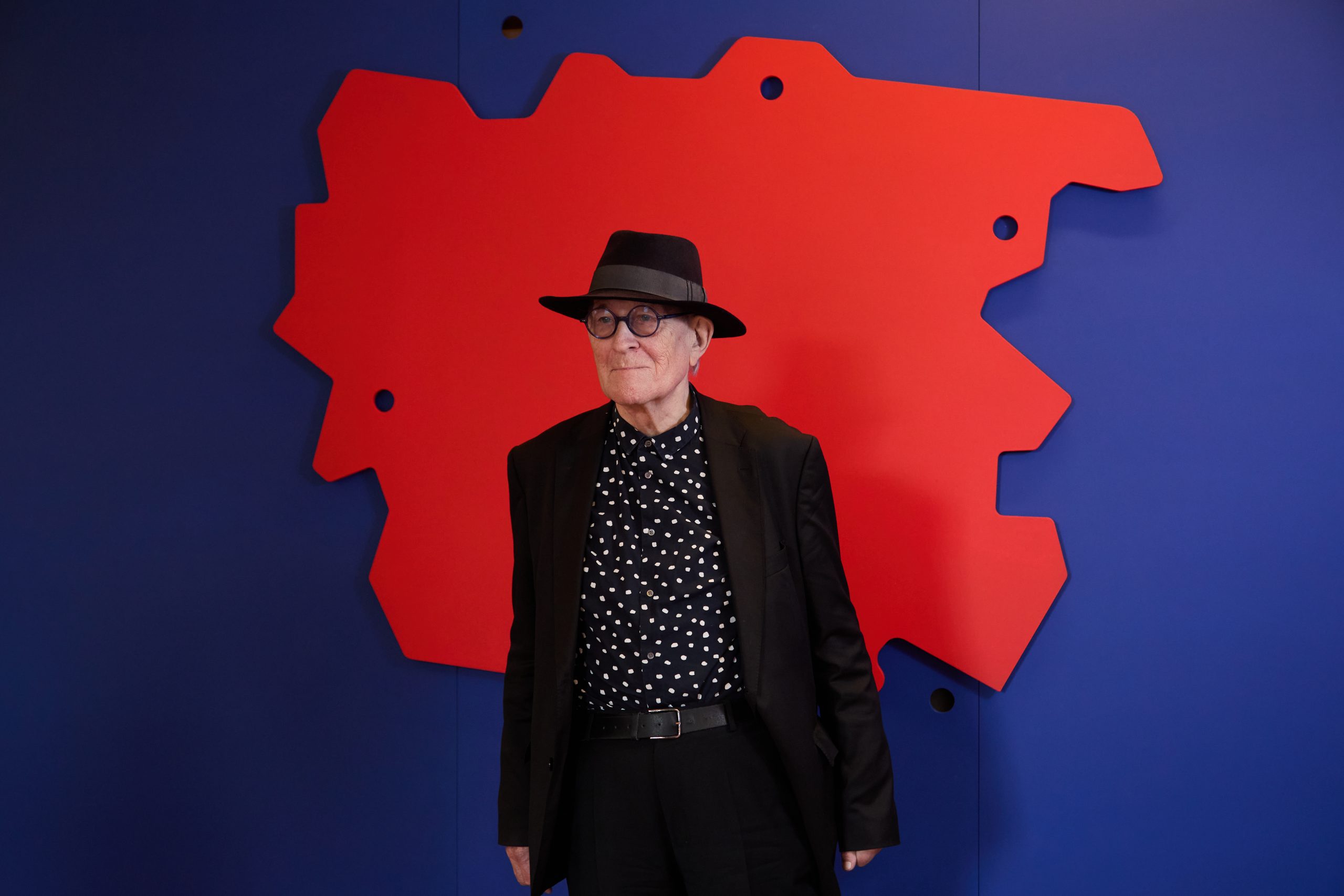 BA Architecture •
BA Architecture •Norwich University of the Arts presents the Peter Cook: Wonder Hub
Norwich University has launched the Peter Cook: Wonder Hub, a vibrant and interactive space for thinking, making, showcasing and debating the creative arts. -
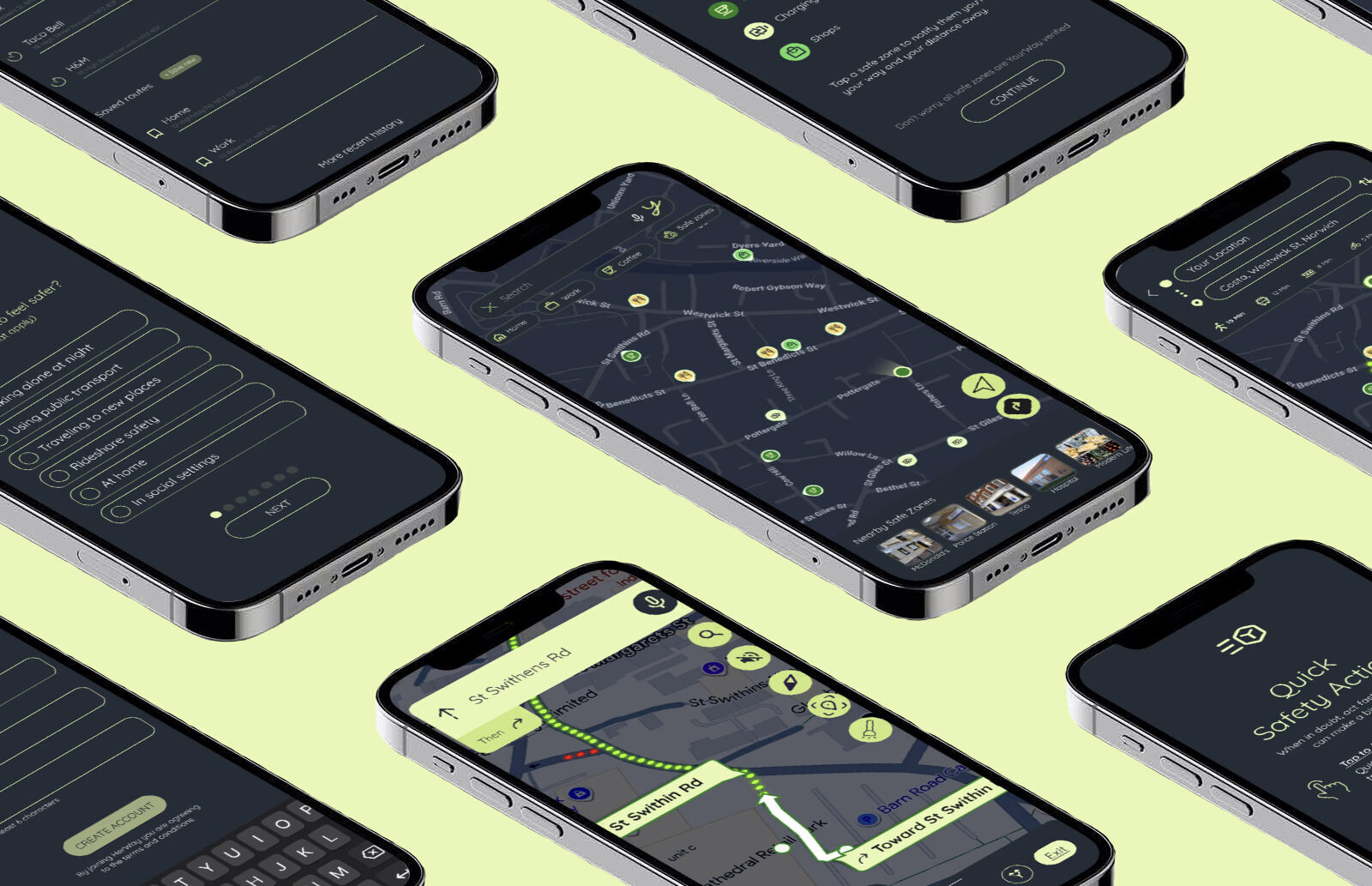 BA Graphic Communication •
BA Graphic Communication •Norwich students celebrate success at 2025 Creative Conscience Awards
Students from Norwich University of the Arts have been recognised across categories in this year’s awards, which showcase work focusing on social or environmental impact
Related courses
Discover our courses and take the first step towards unleashing your potential
-
Visit the Fashion Communication and Promotion BA (Hons) course page
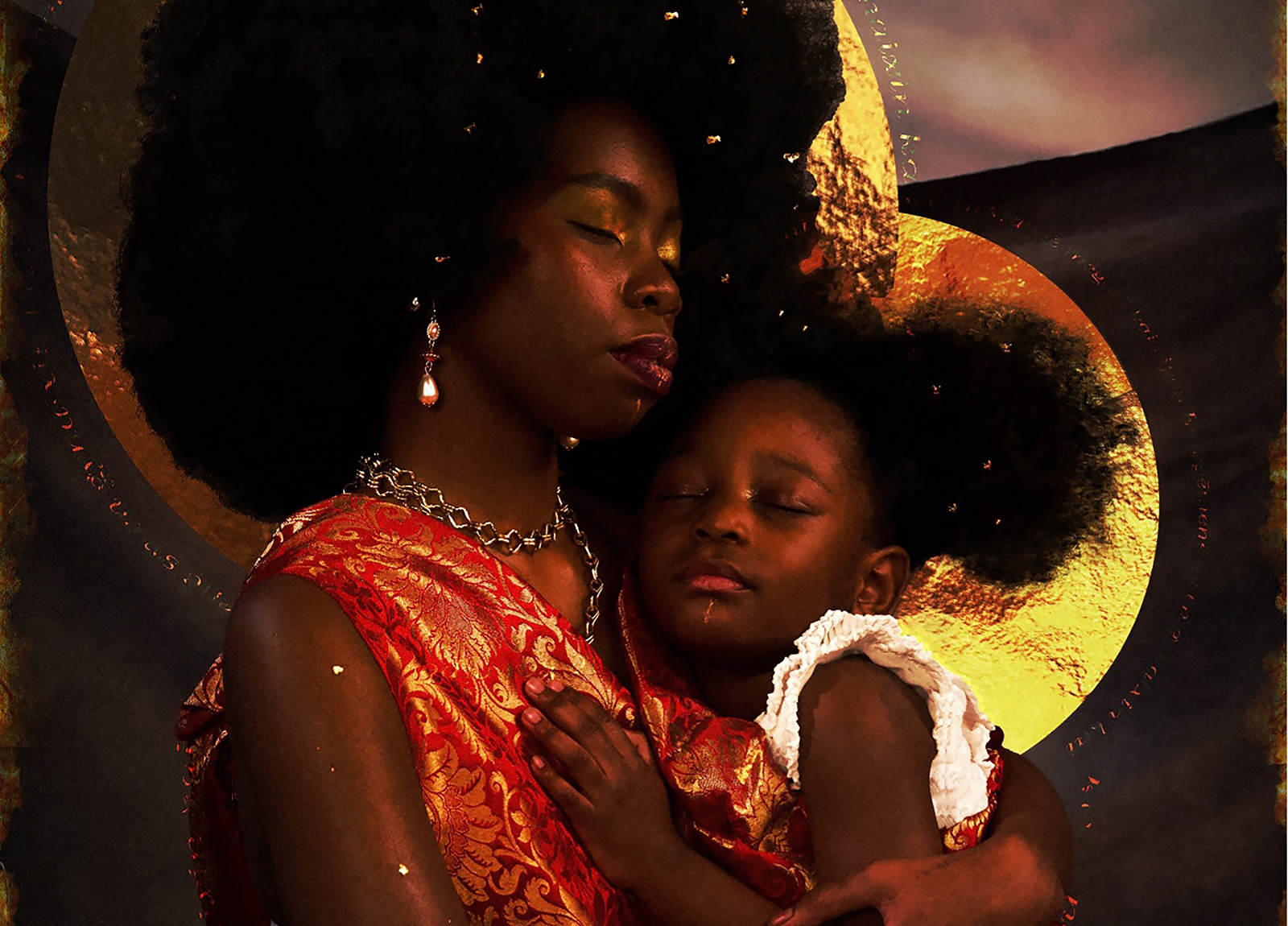
- Filter courses by study level: Undergraduate
- Filter courses by duration: Full time
- Filter courses by start month: September
- Filter courses by subject: Fashion Communication and Promotion
Fashion Communication and Promotion BA (Hons)
Create original content and eye-catching campaigns that mirror the marketing strategies and visual communication skills driving the global fashion industry.
-
Visit the Fashion Marketing and Business BA (Hons) course page
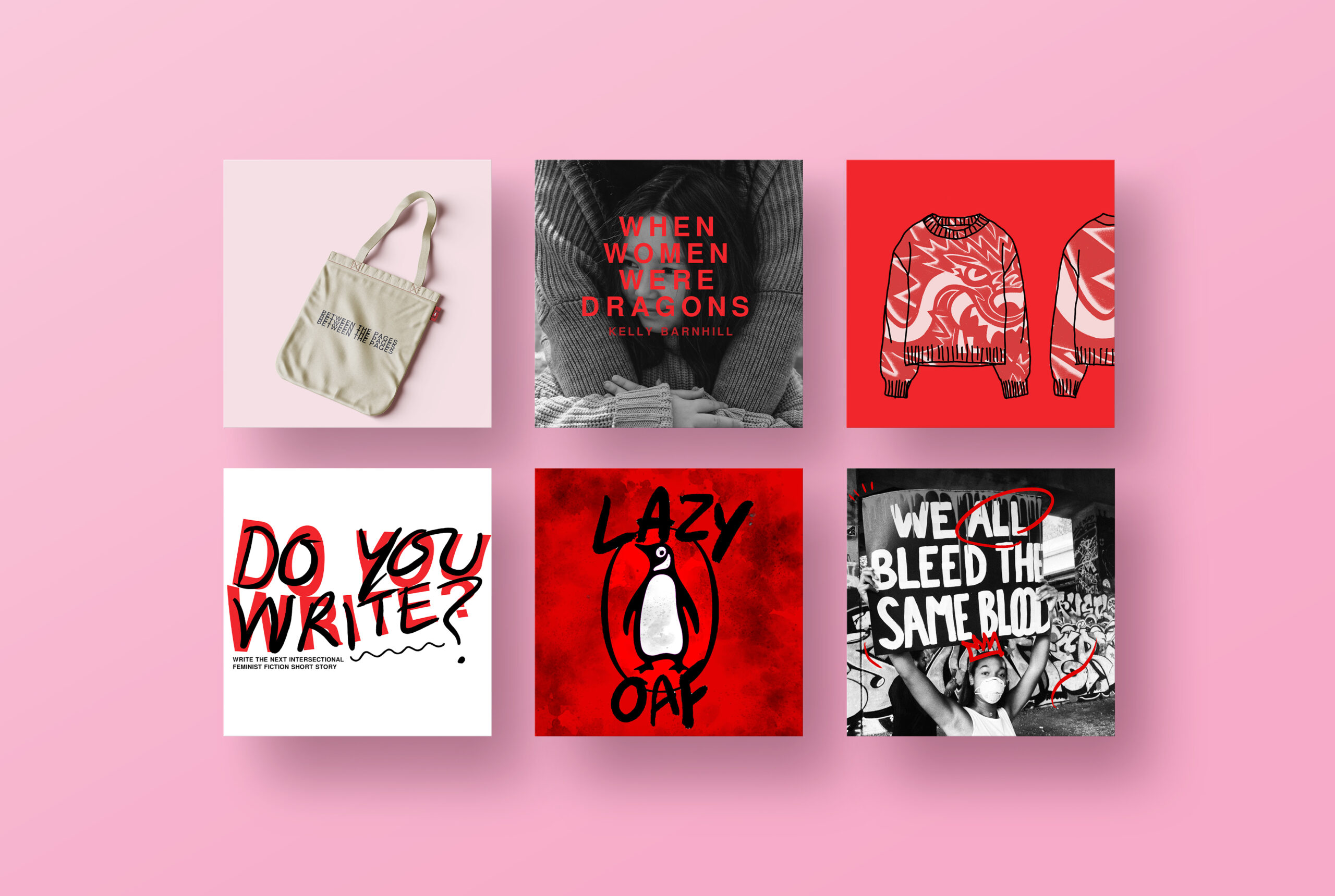
- Filter courses by study level: Undergraduate
- Filter courses by duration: Full time
- Filter courses by start month: September
- Filter courses by subject: Fashion Marketing and Business
Fashion Marketing and Business BA (Hons)
Unite your love for fashion innovation and business strategy as you delve into the marketing mechanisms of the global fashion industry.
-
Visit the Textile Design BA (Hons) course page
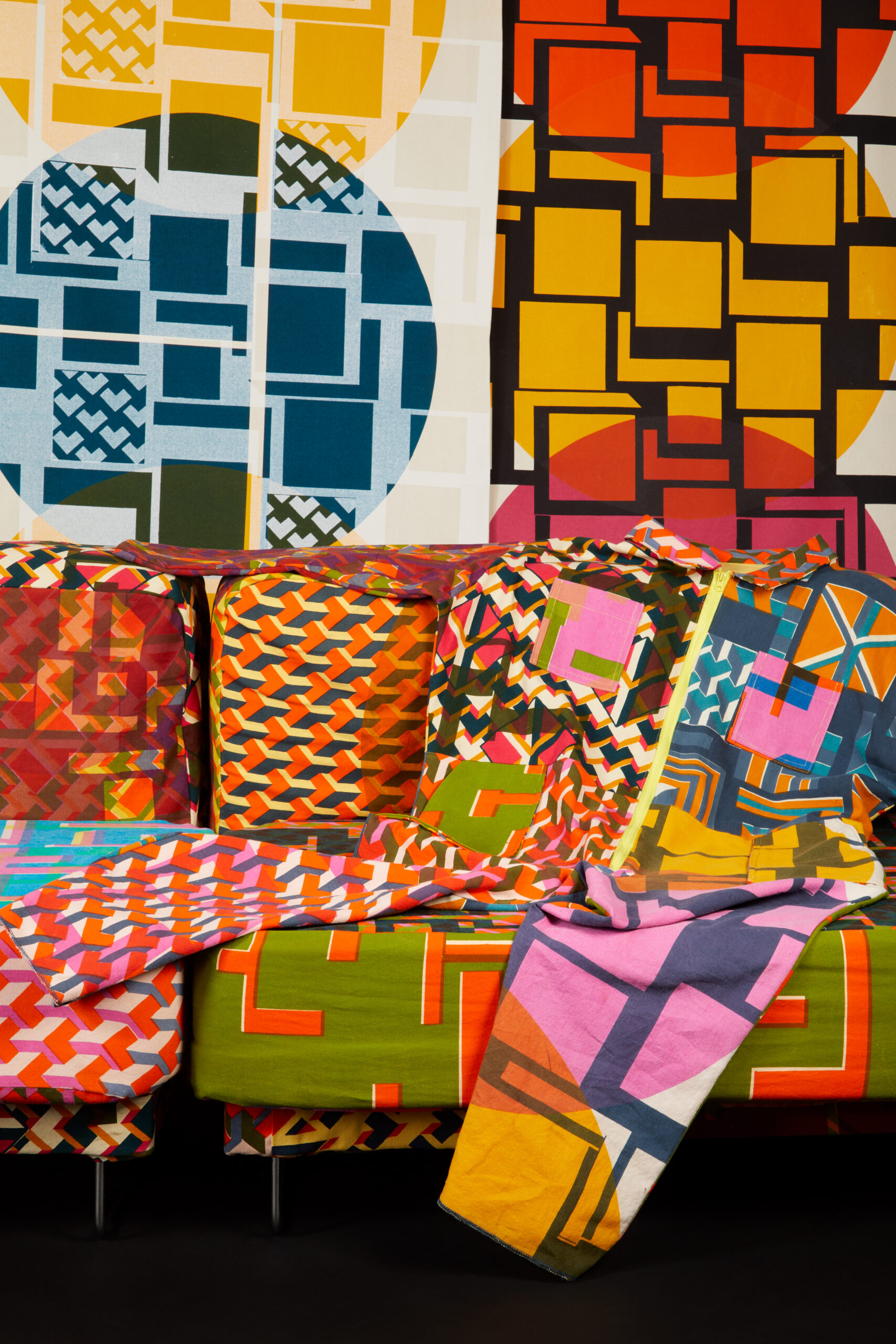
- Filter courses by study level: Undergraduate
- Filter courses by duration: Full time
- Filter courses by start month: September
- Filter courses by subject: Textile Design
Textile Design BA (Hons)
BA (Hons) Textile Design at Norwich is the right choice for the curious and creative student with an interest in shaping our world as a responsible designer.
-
